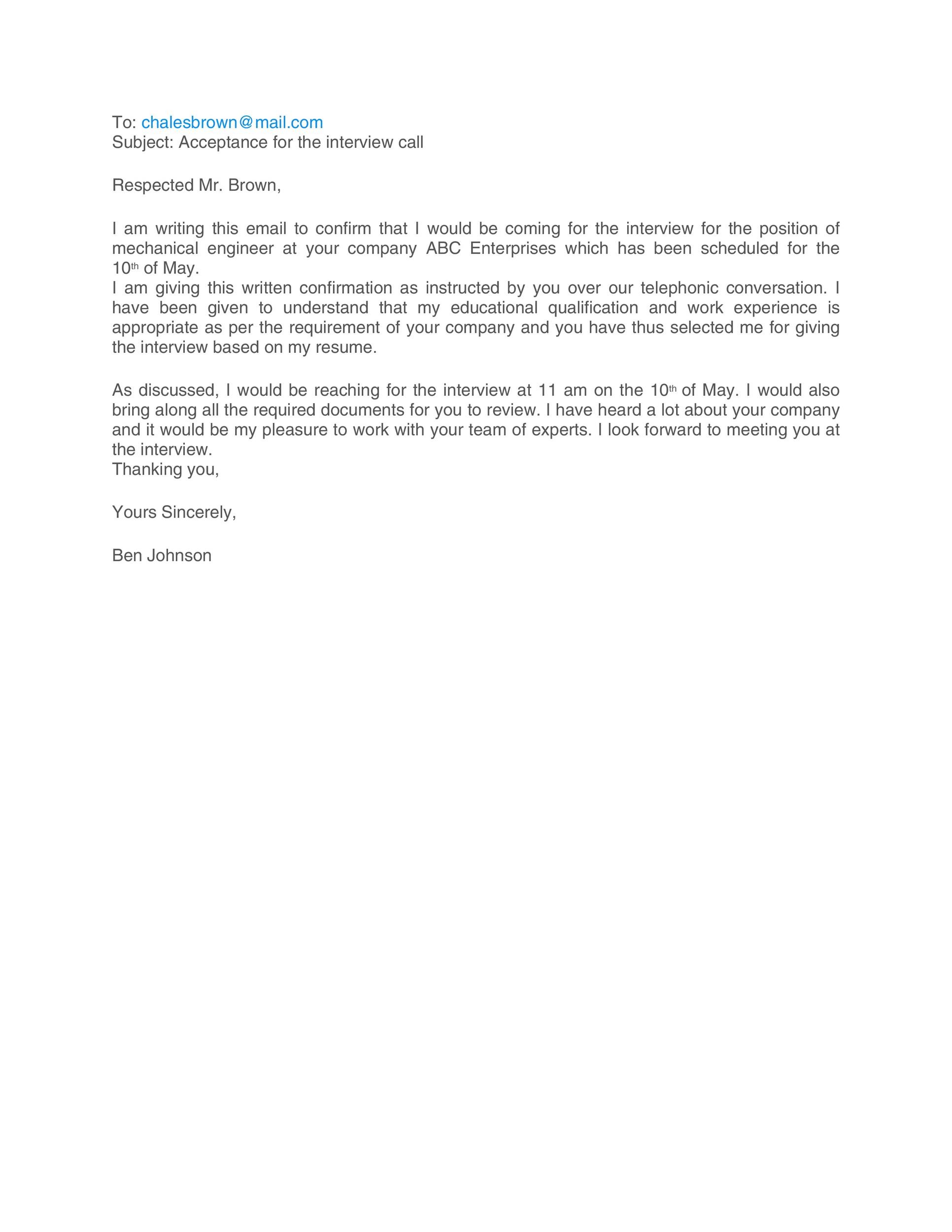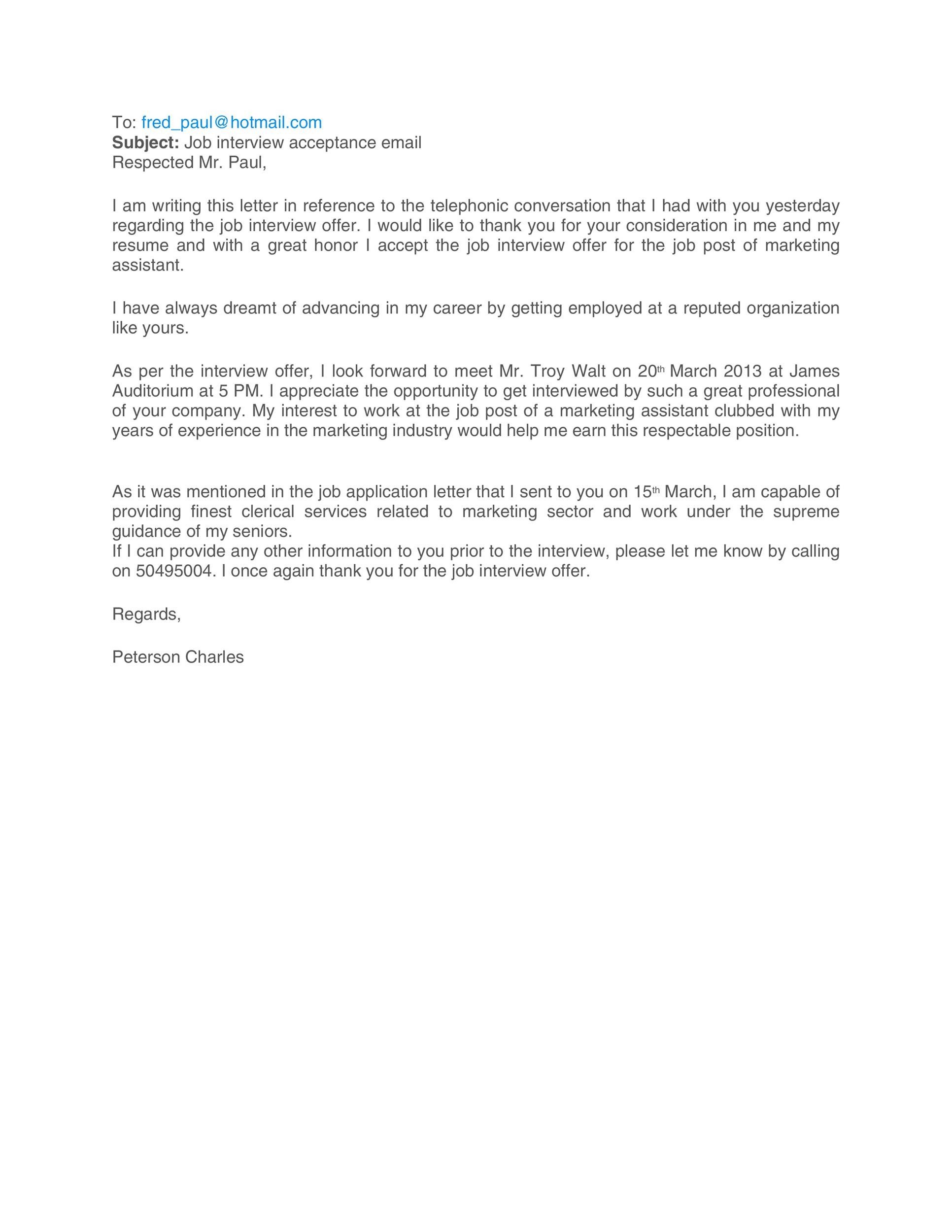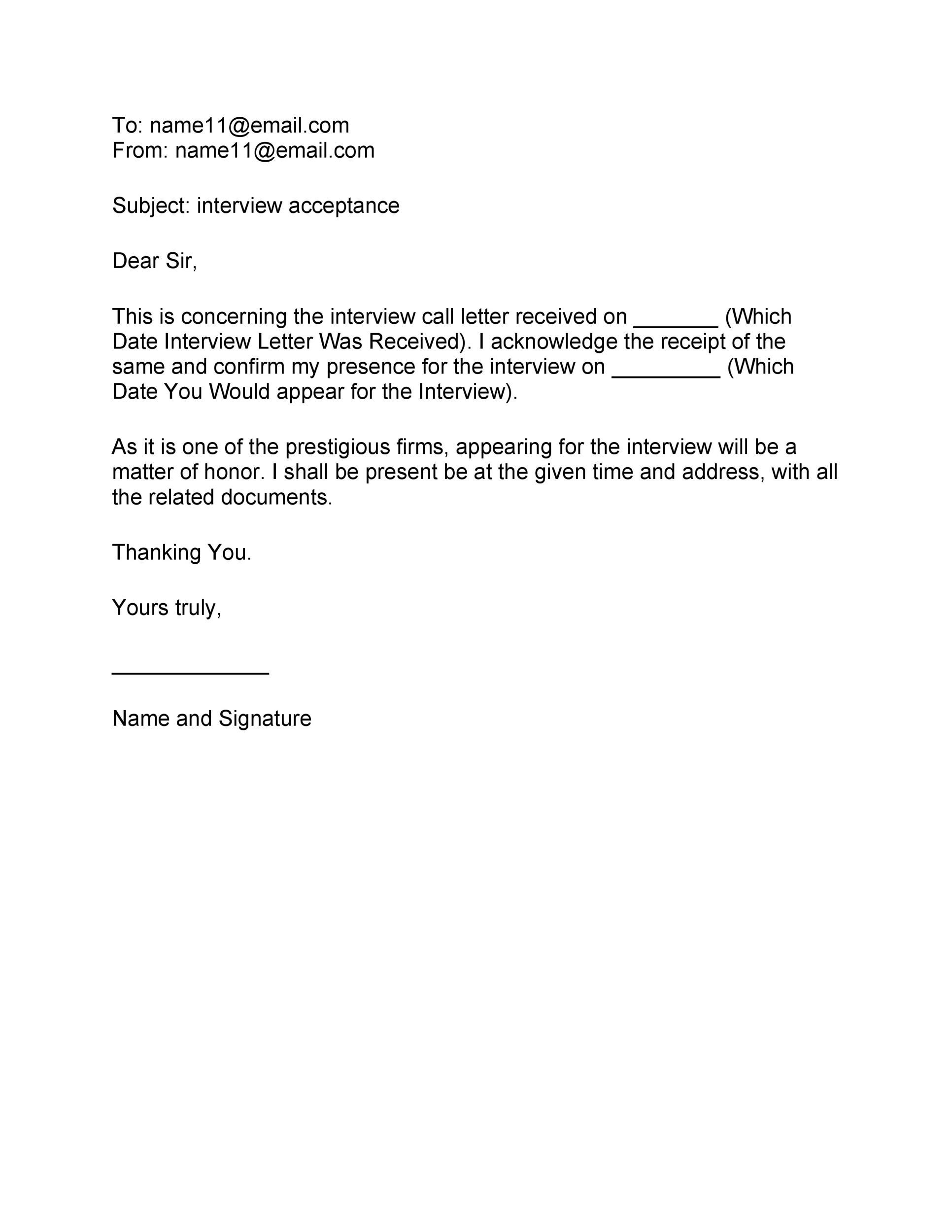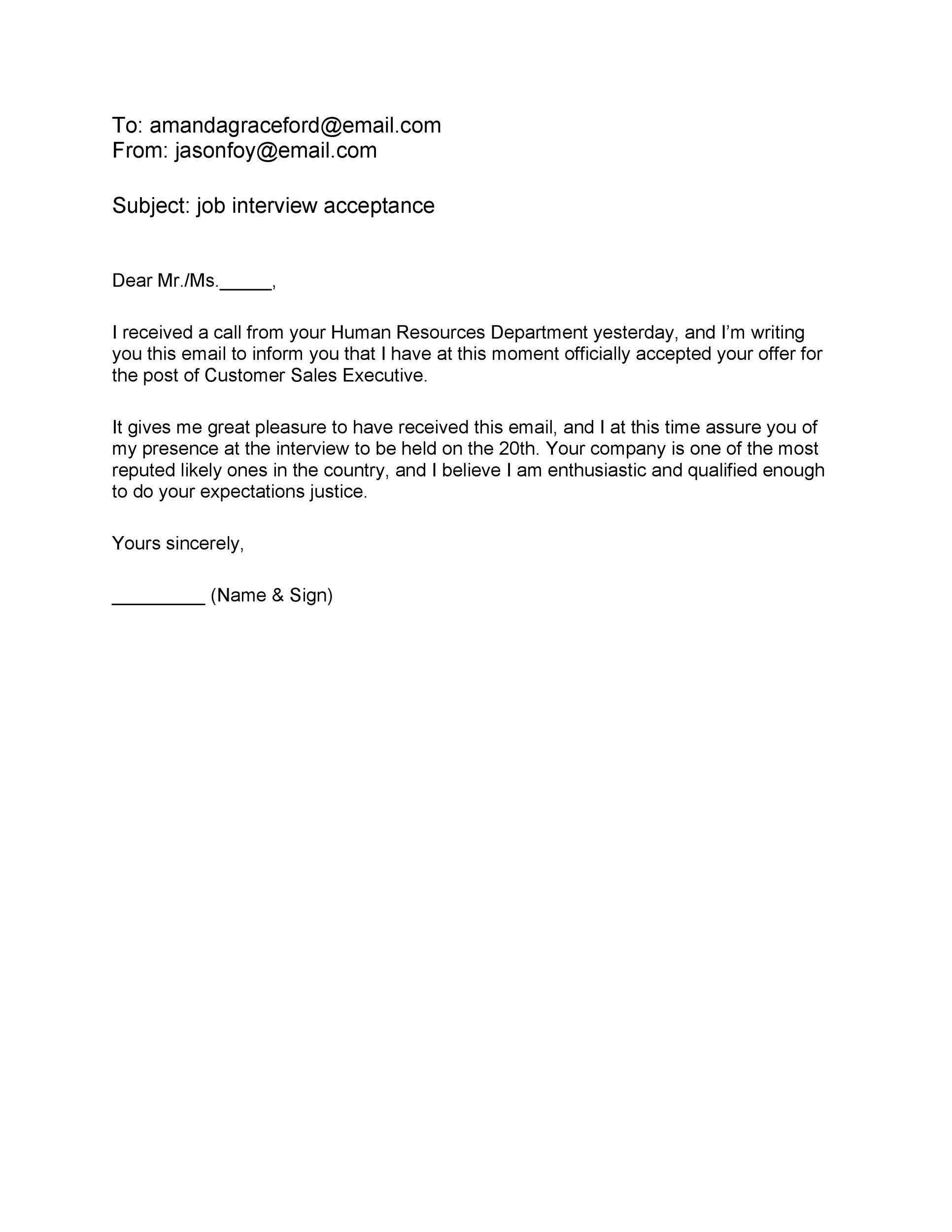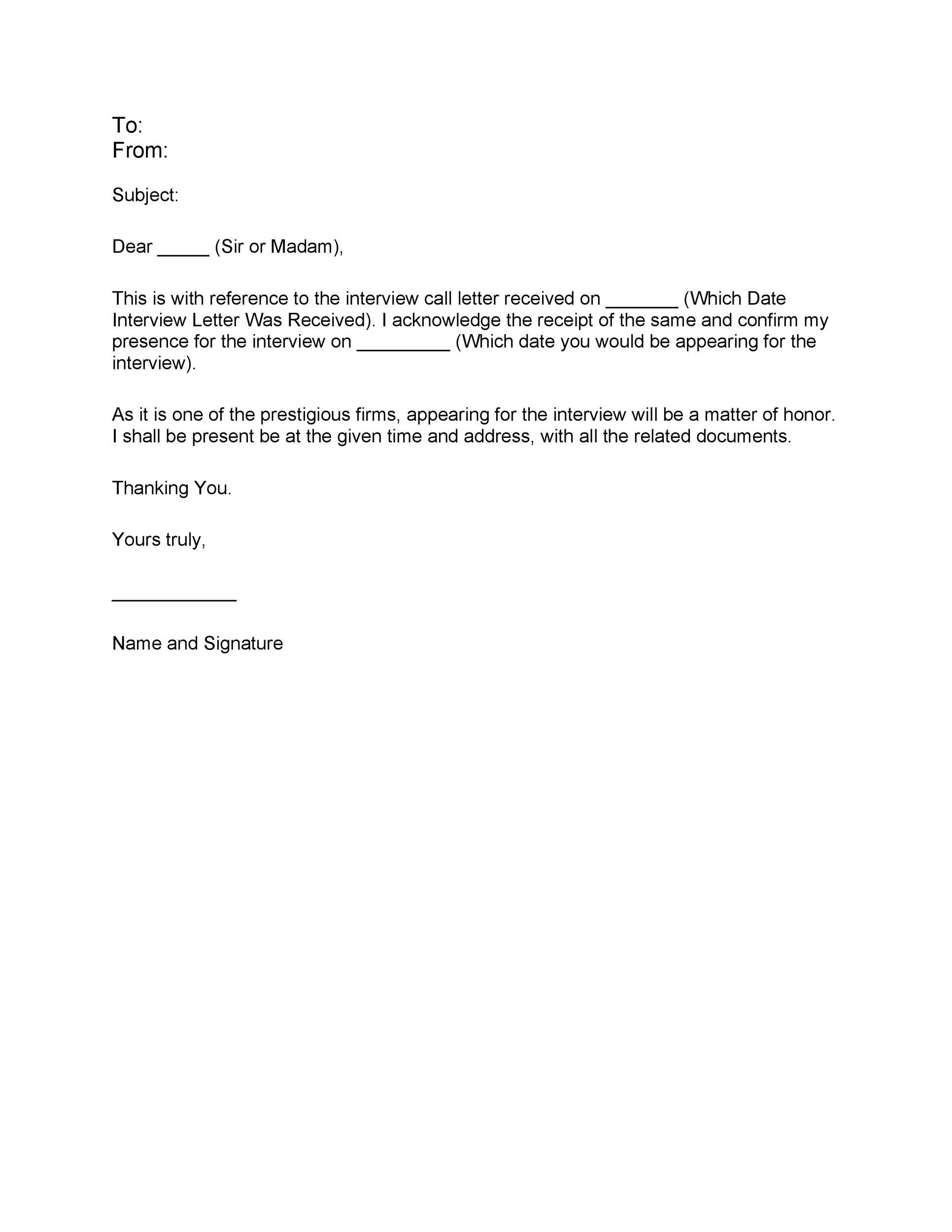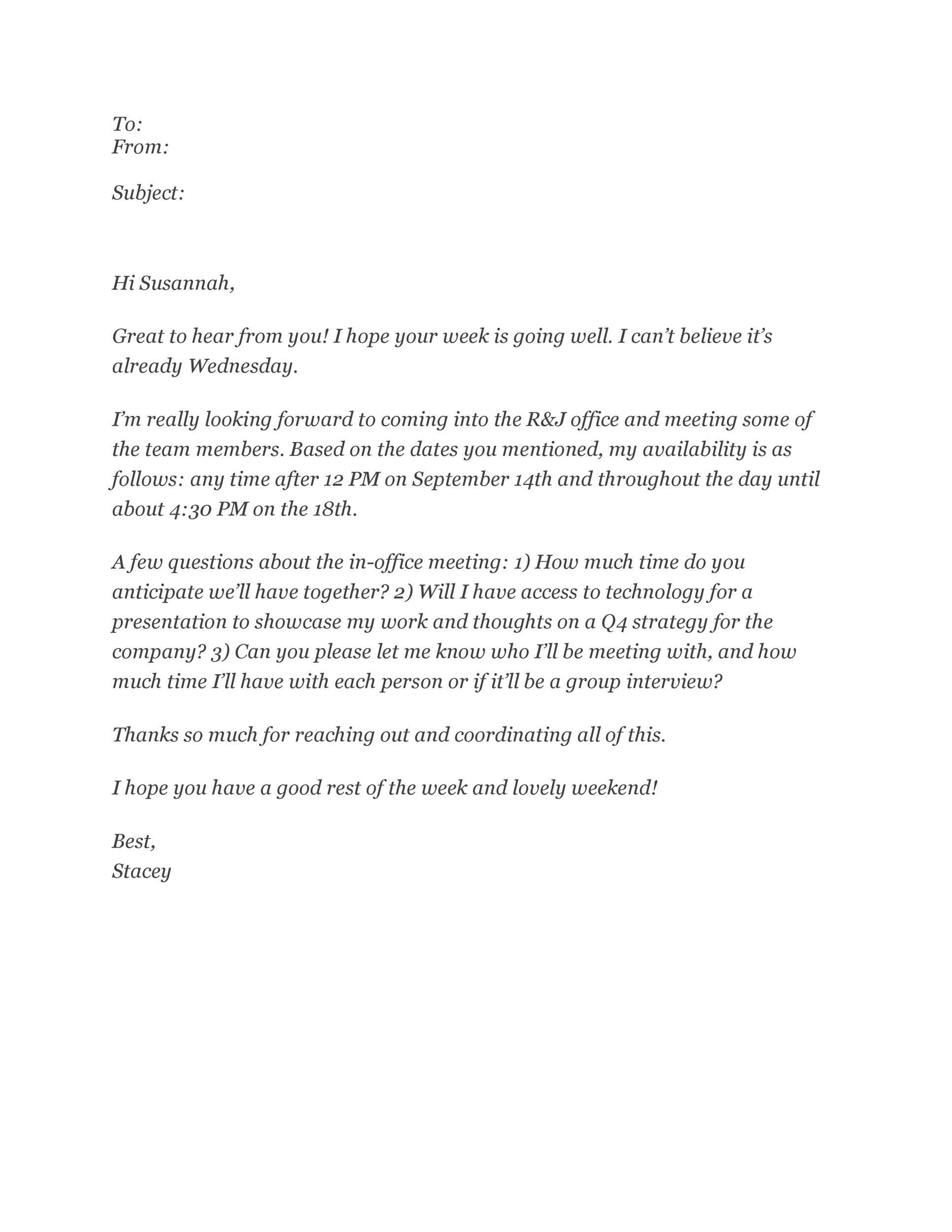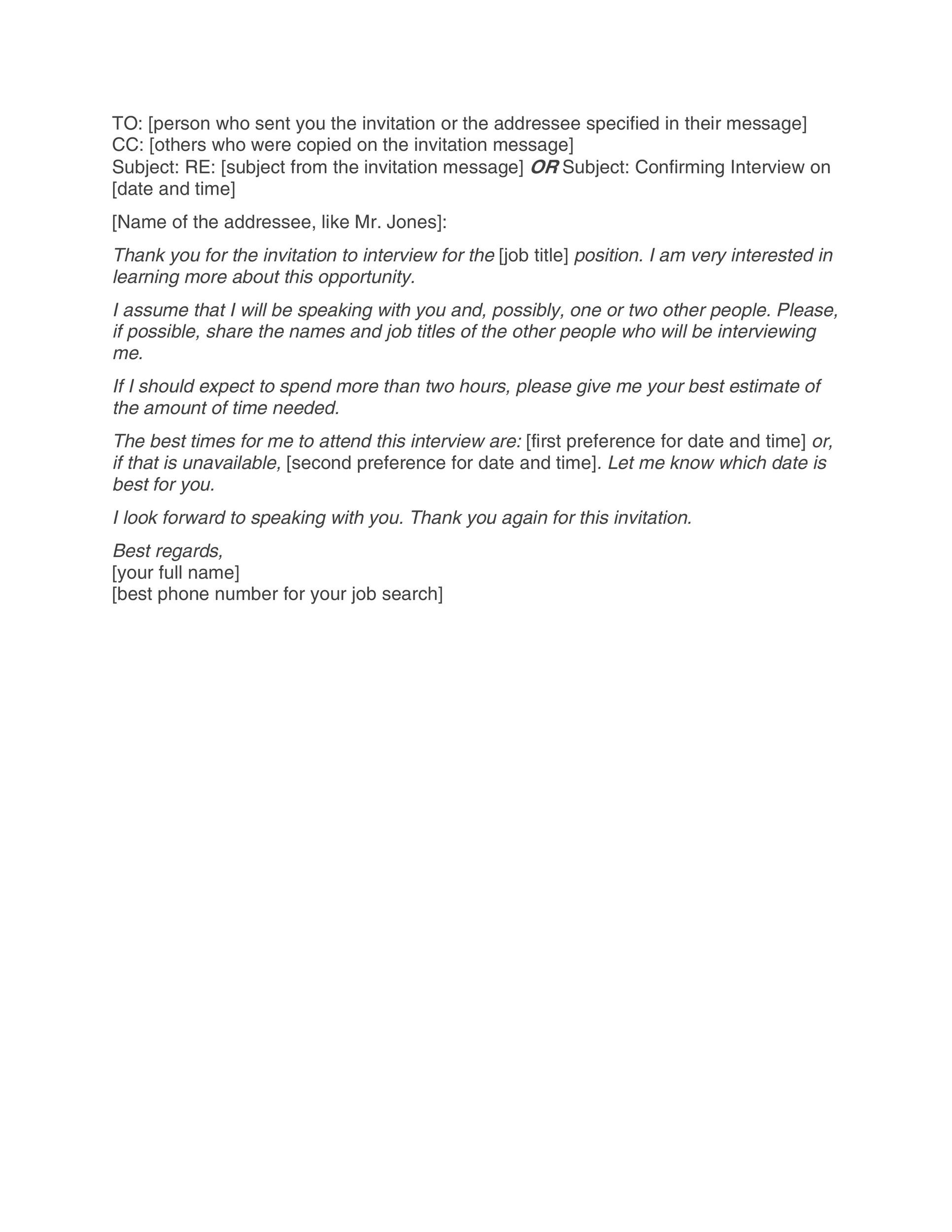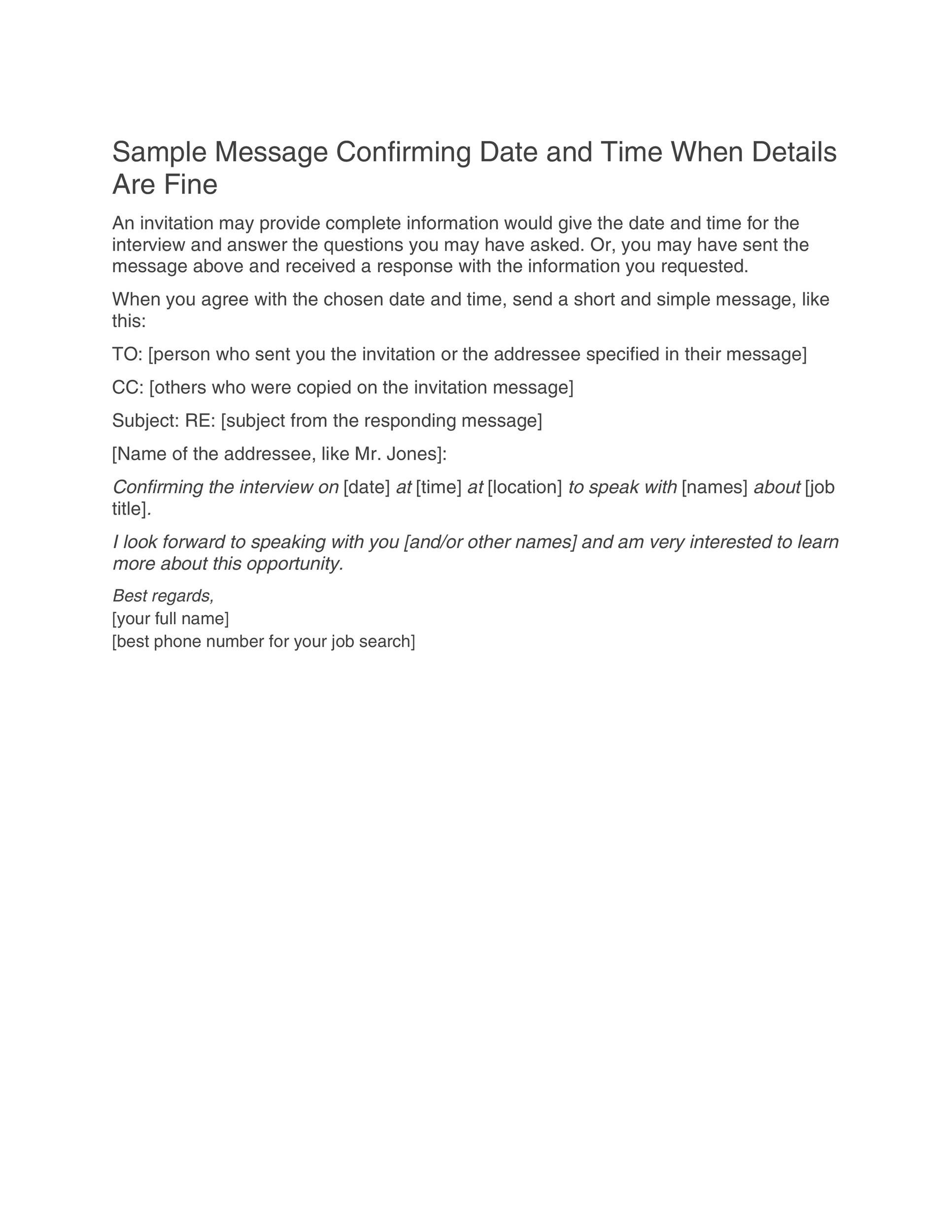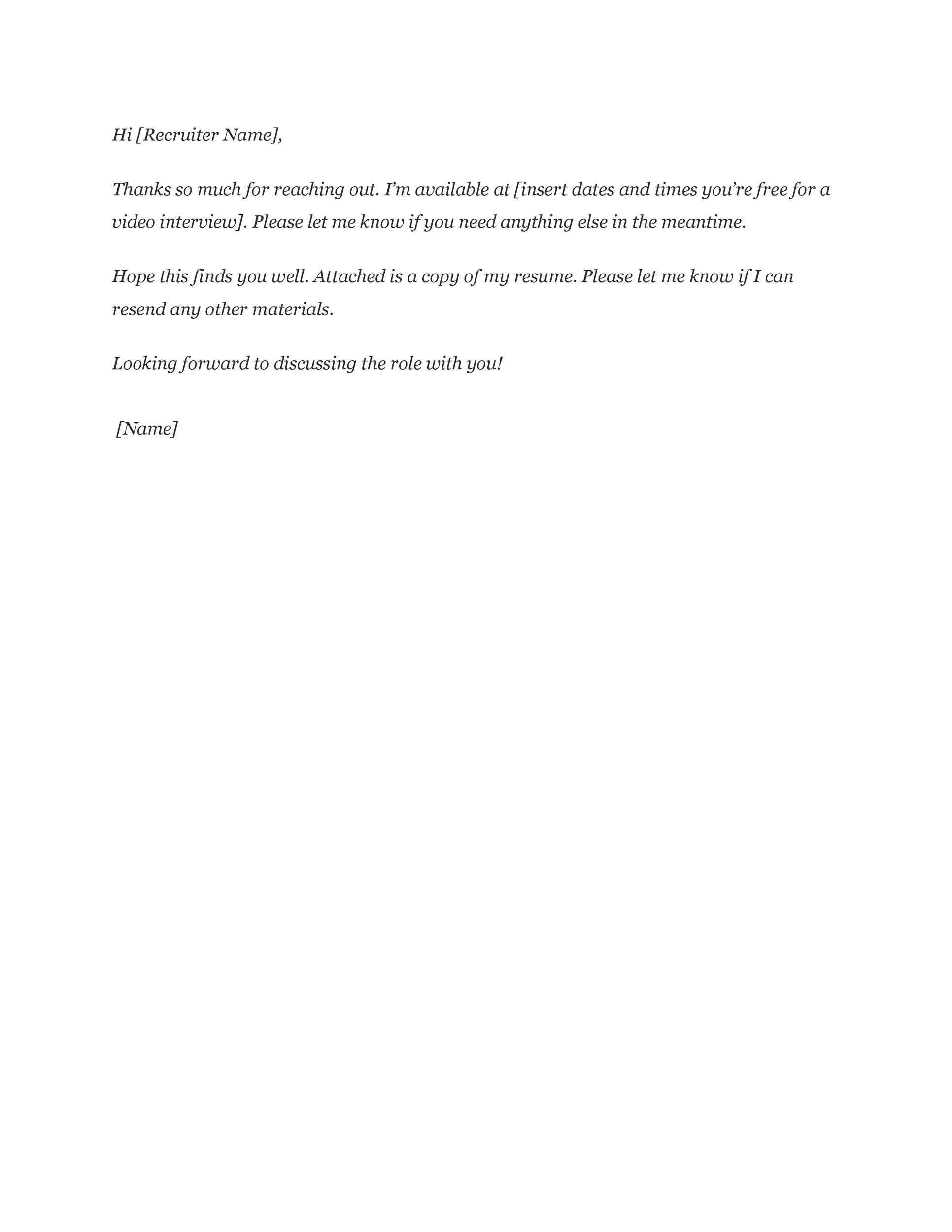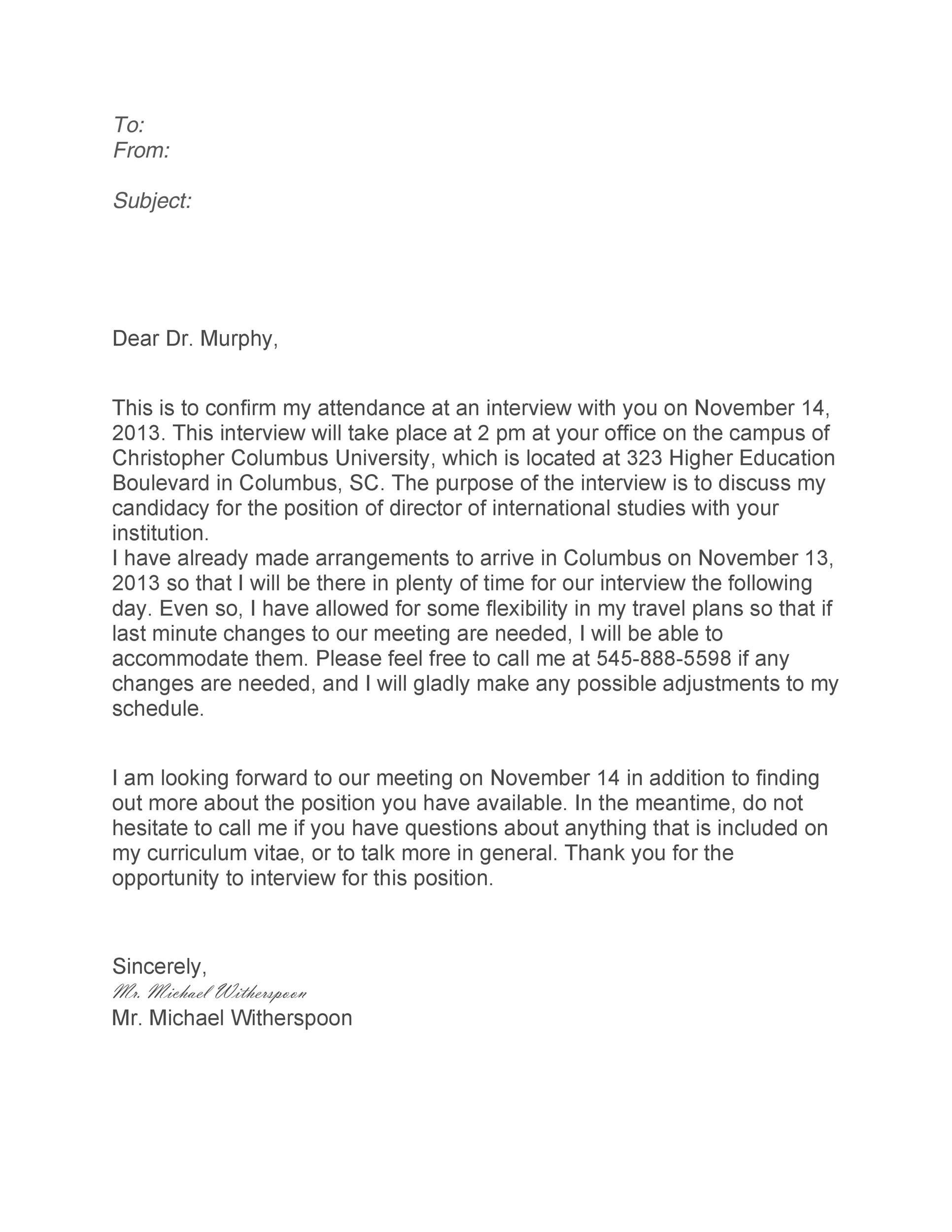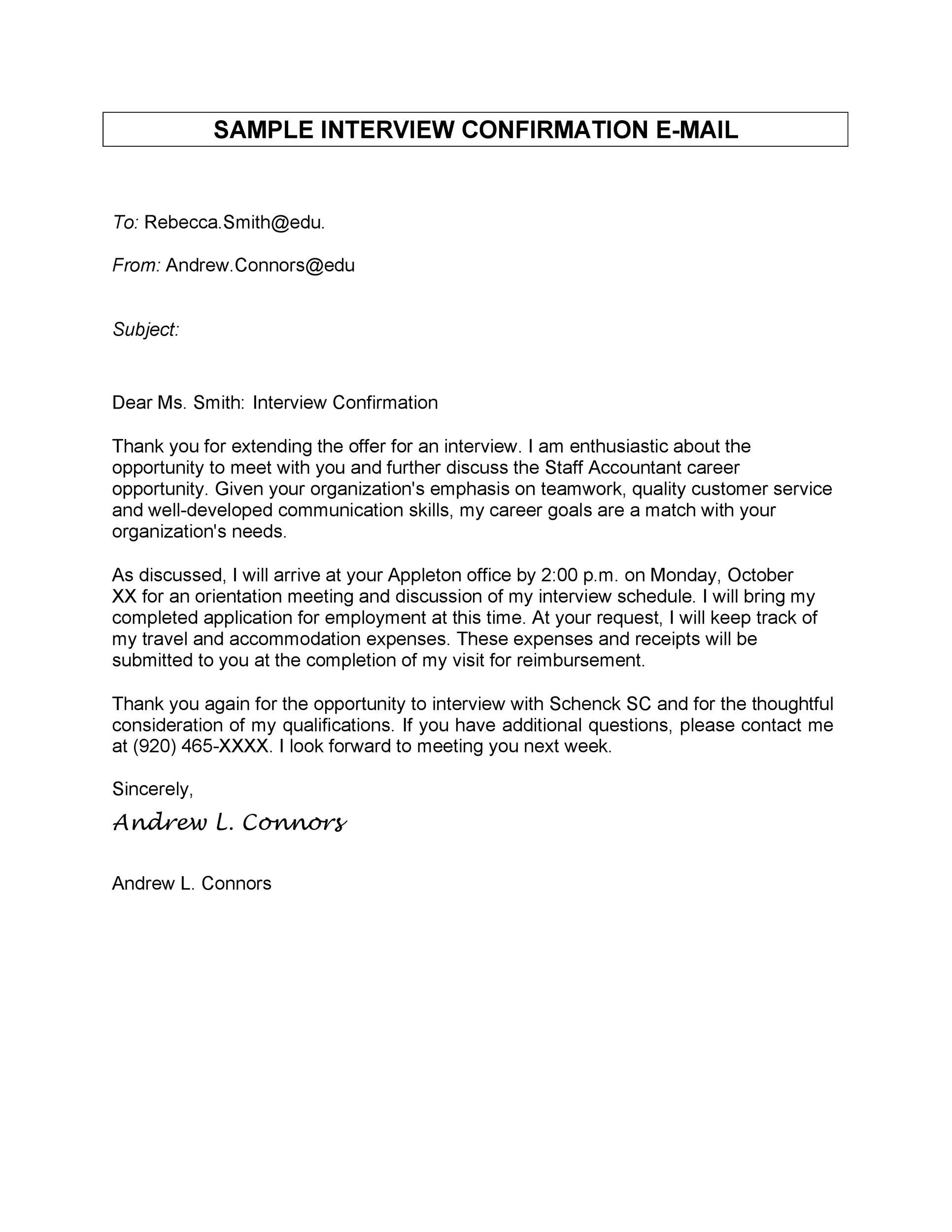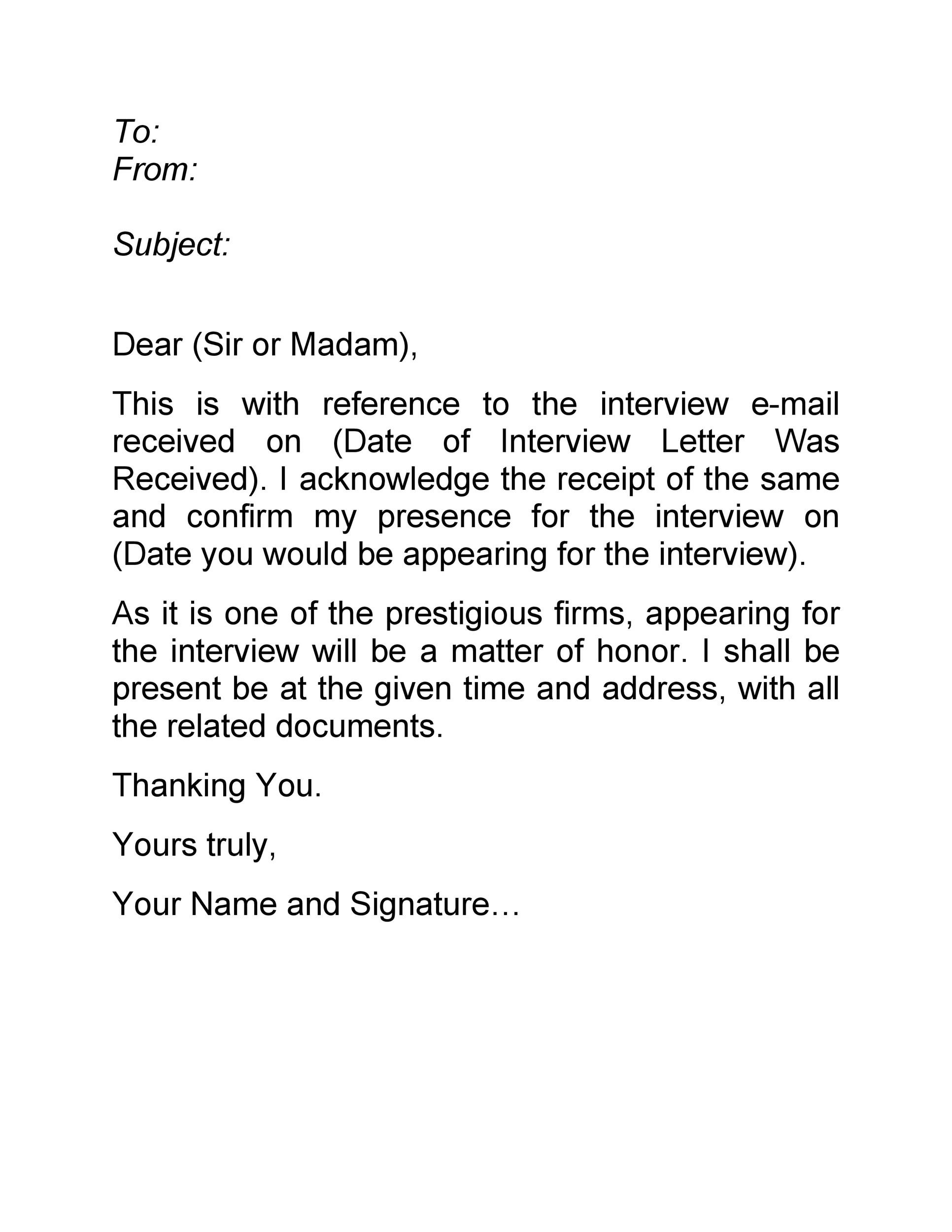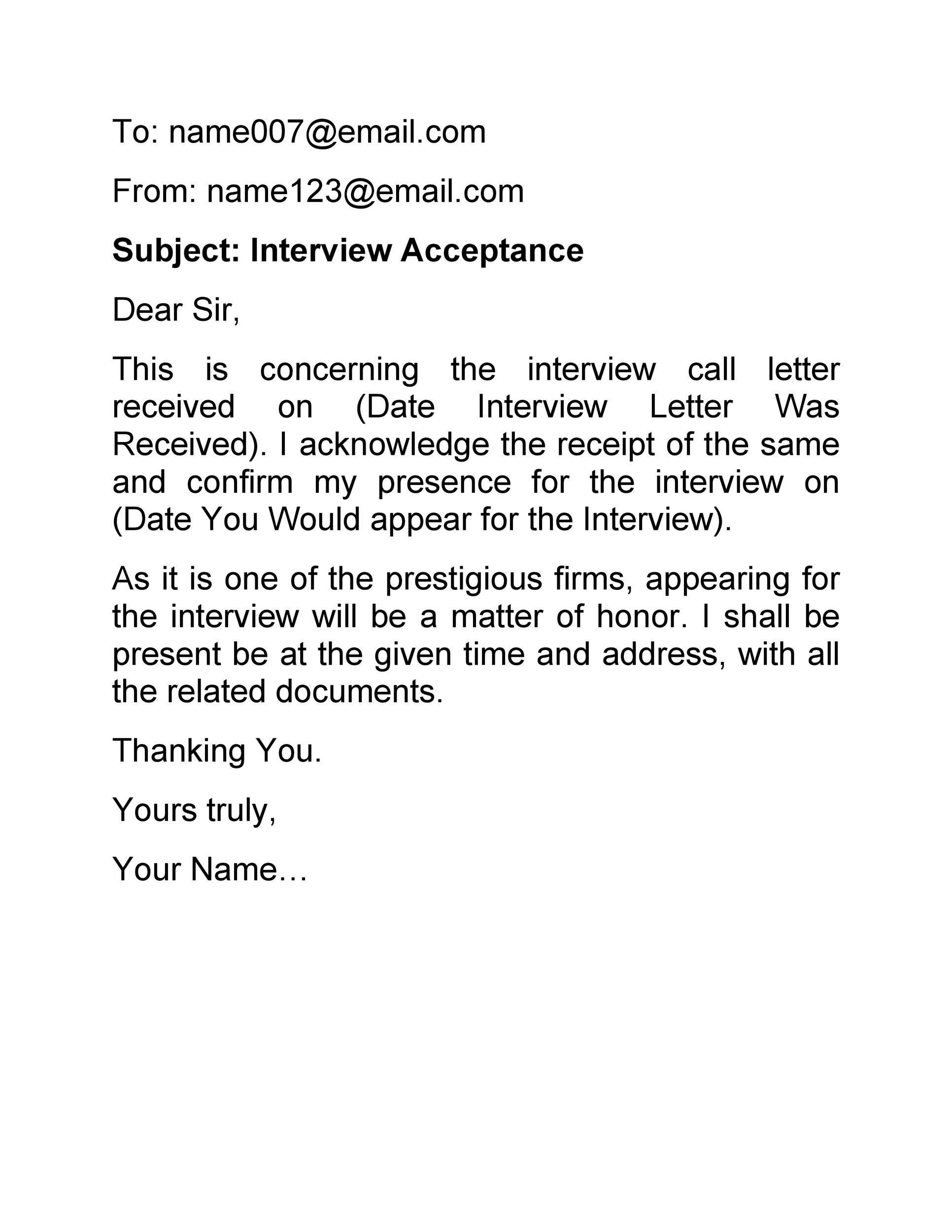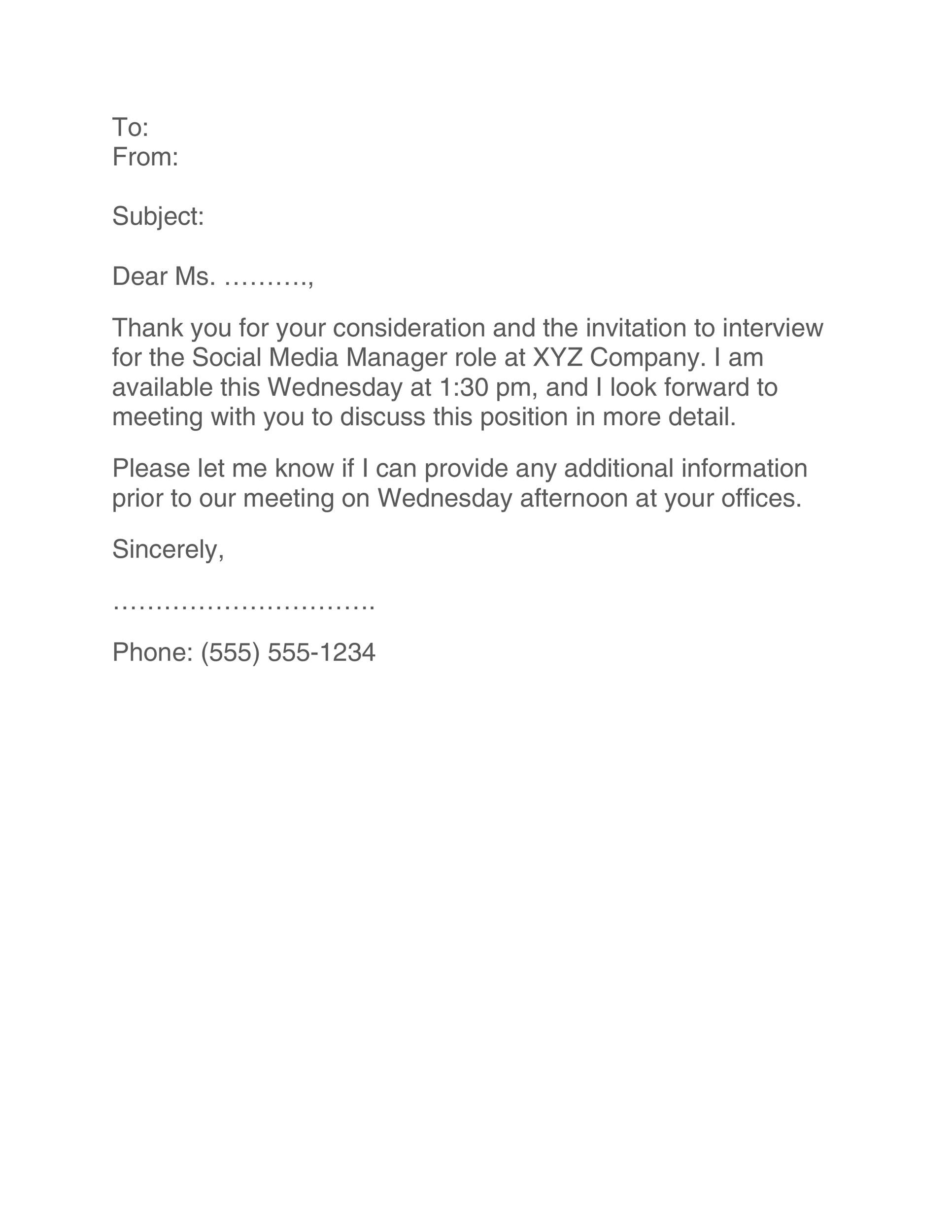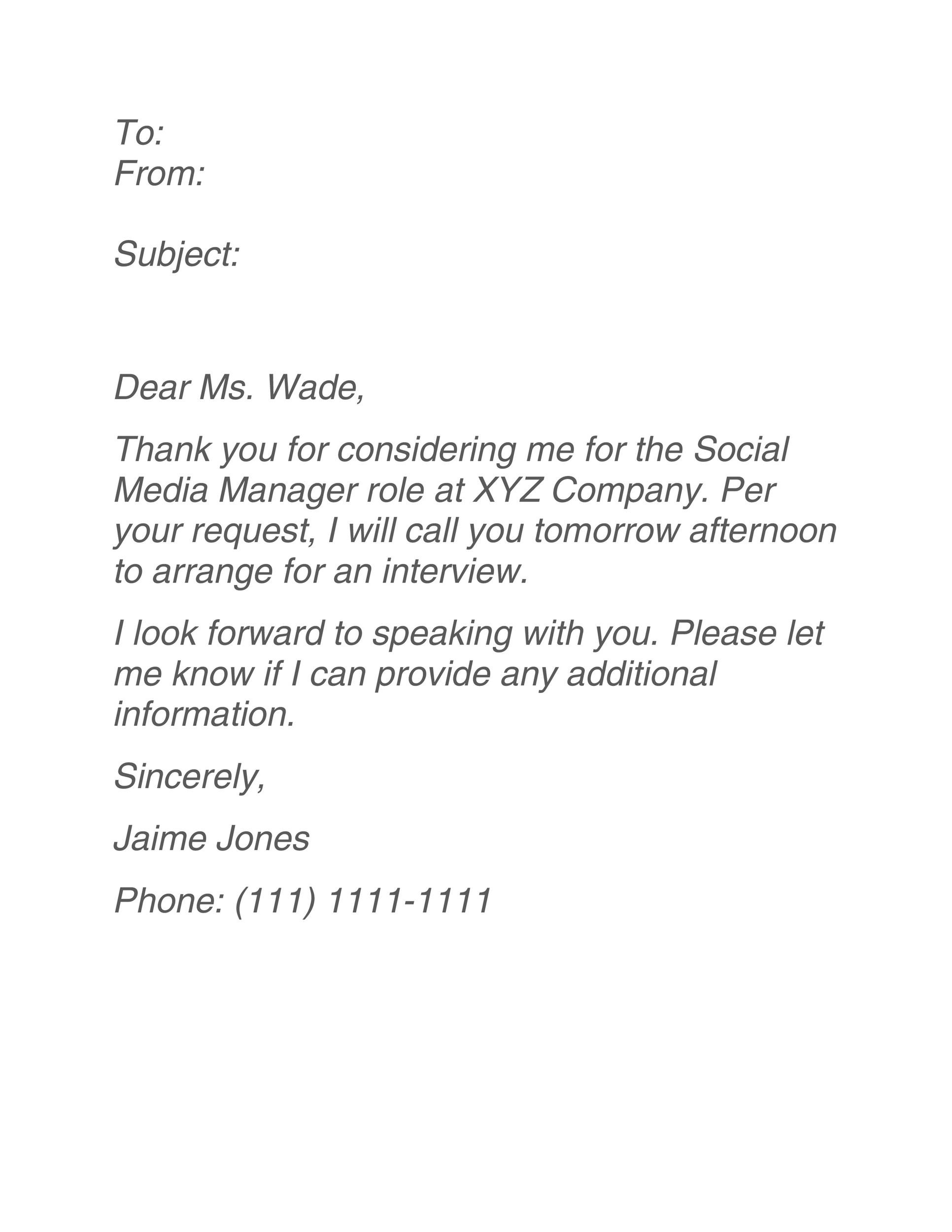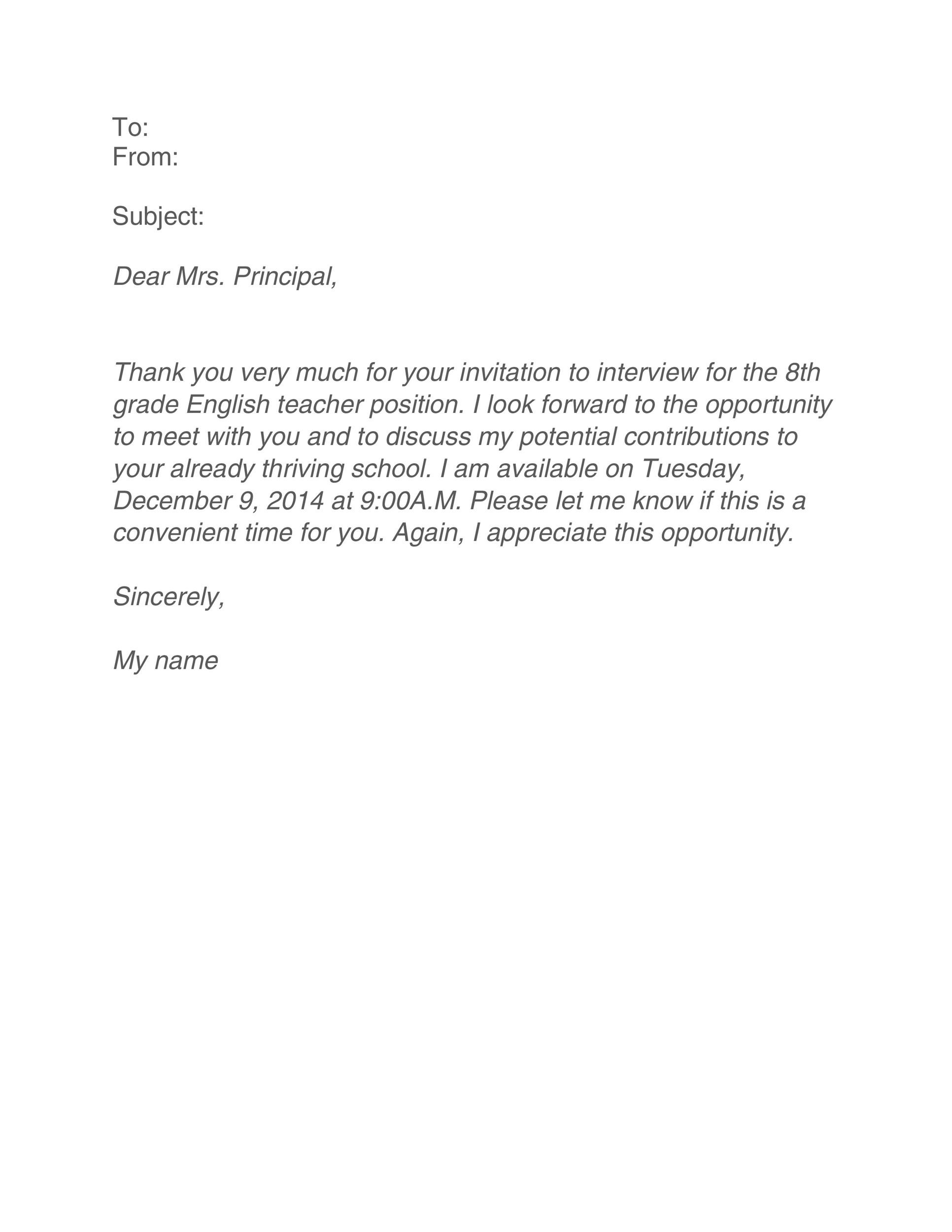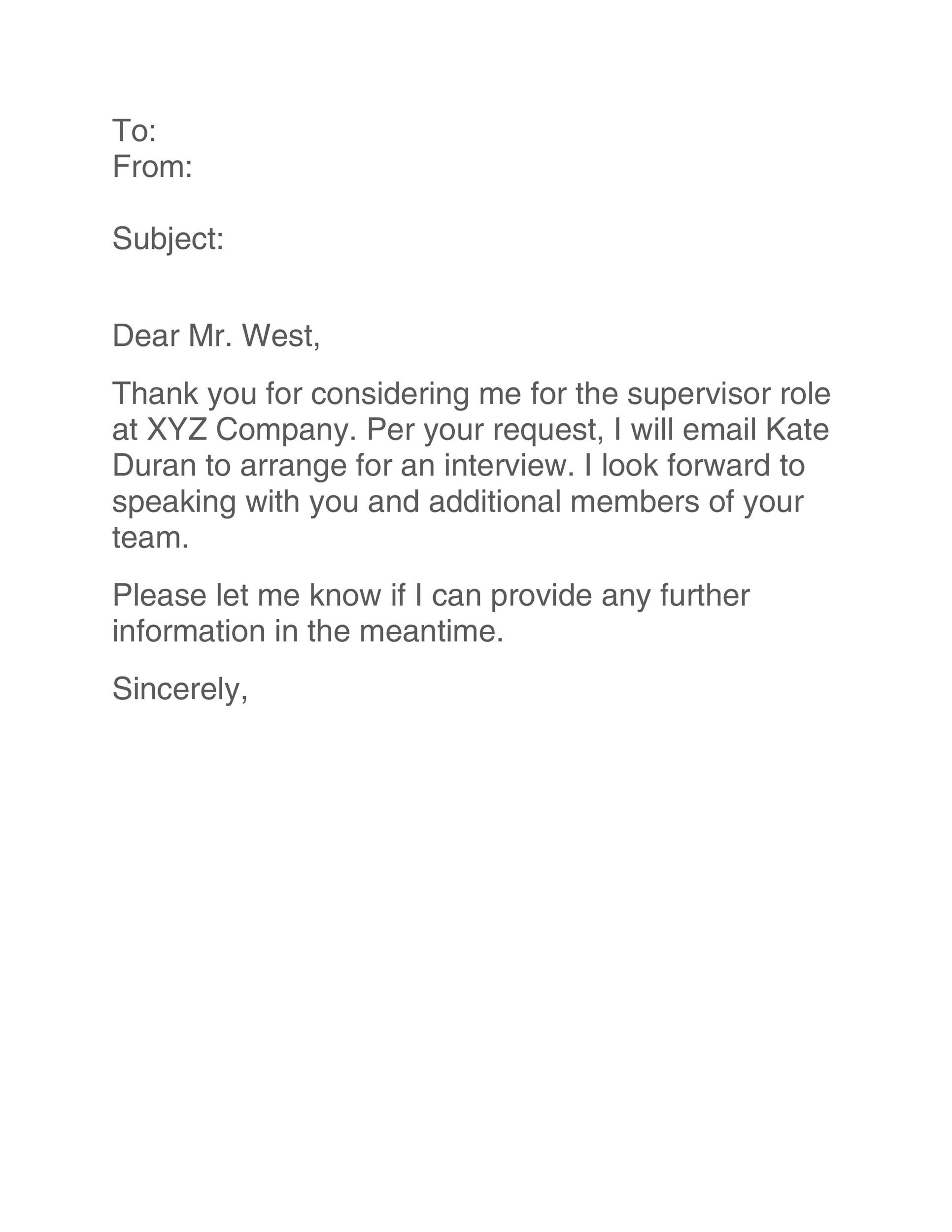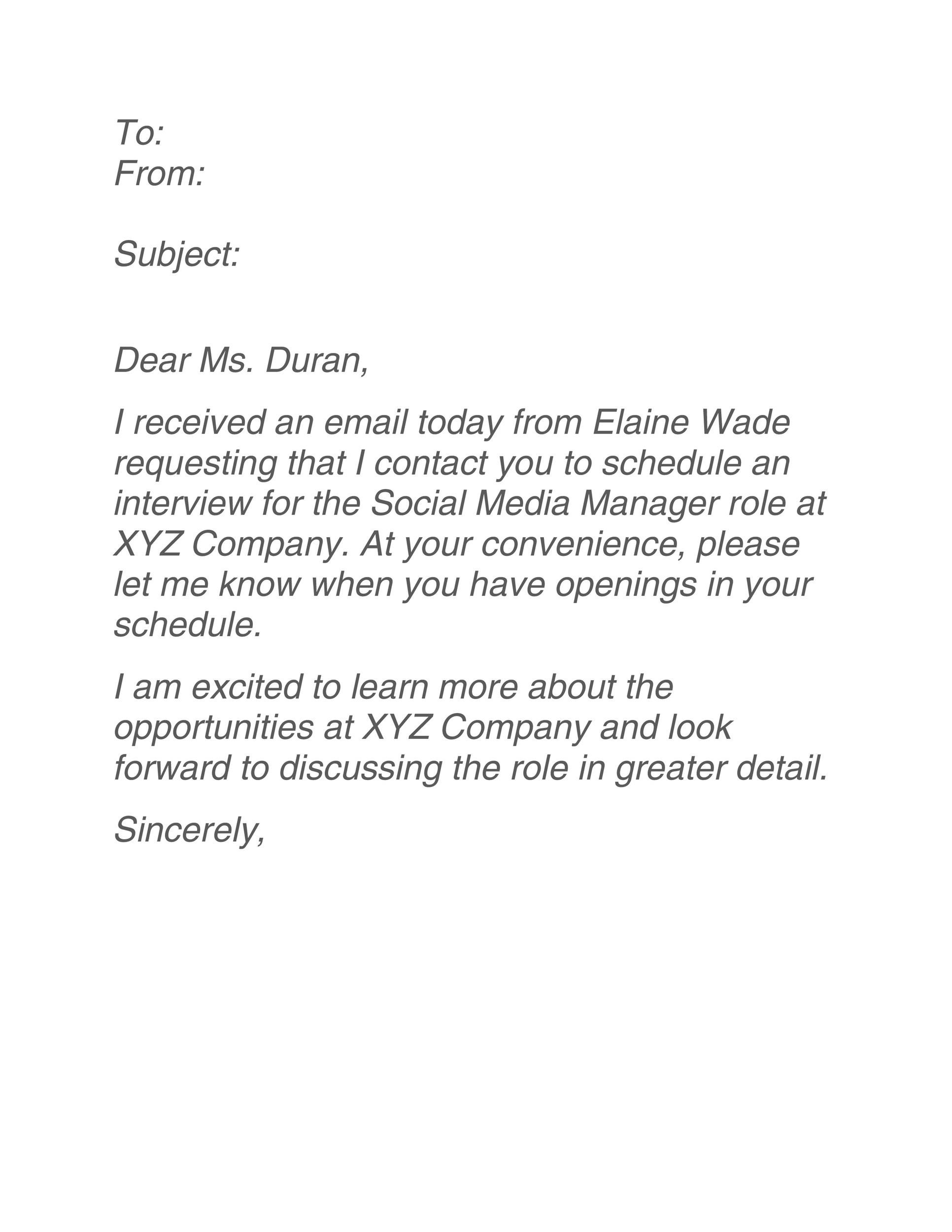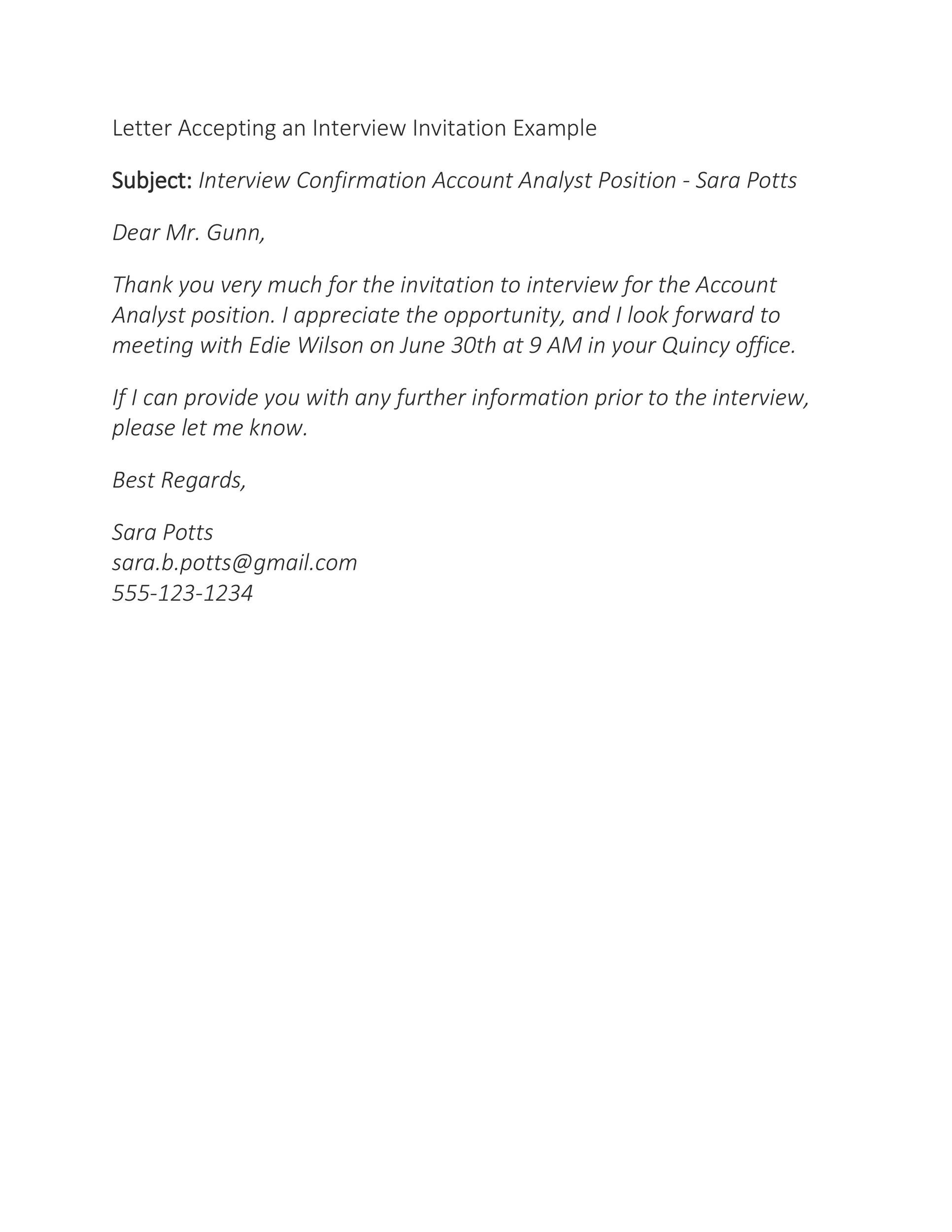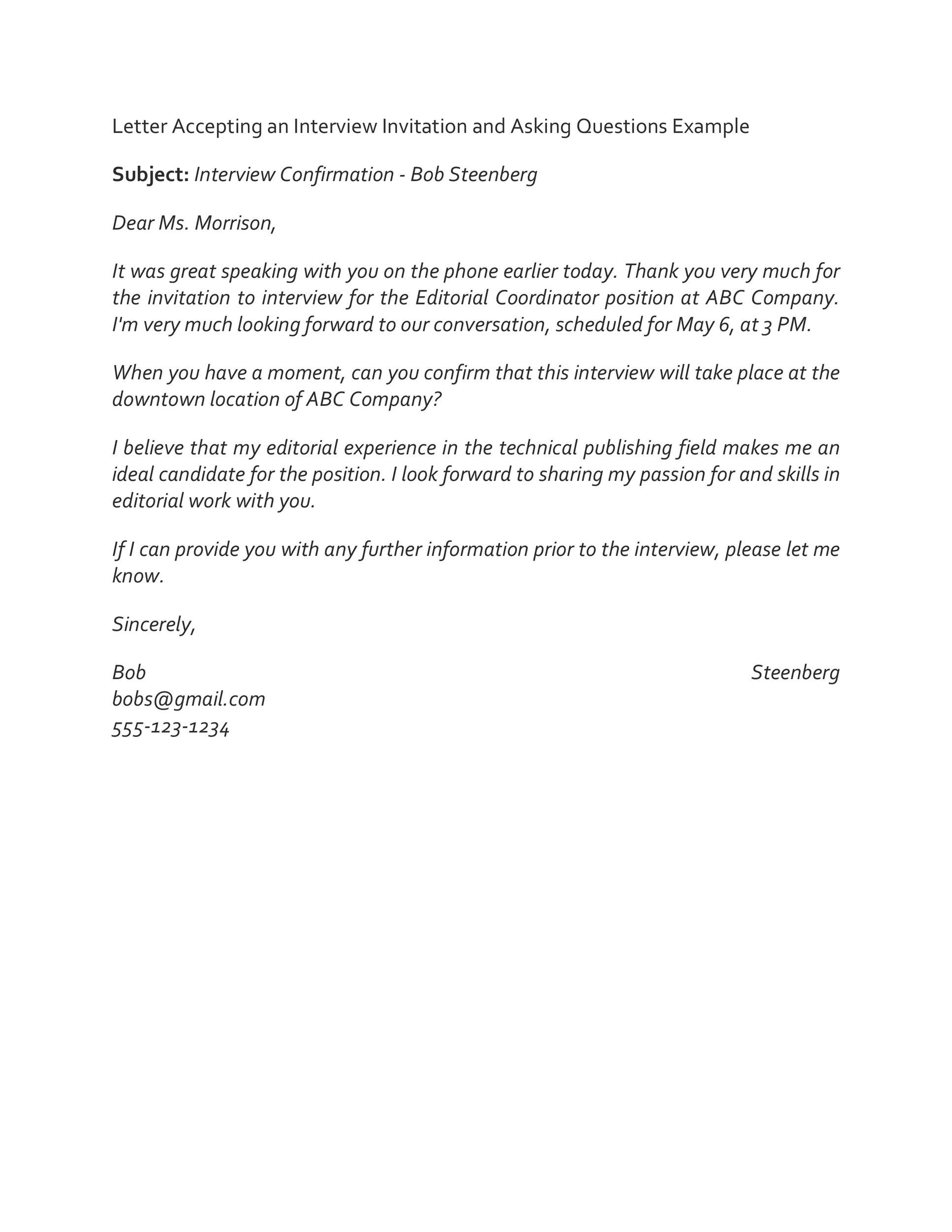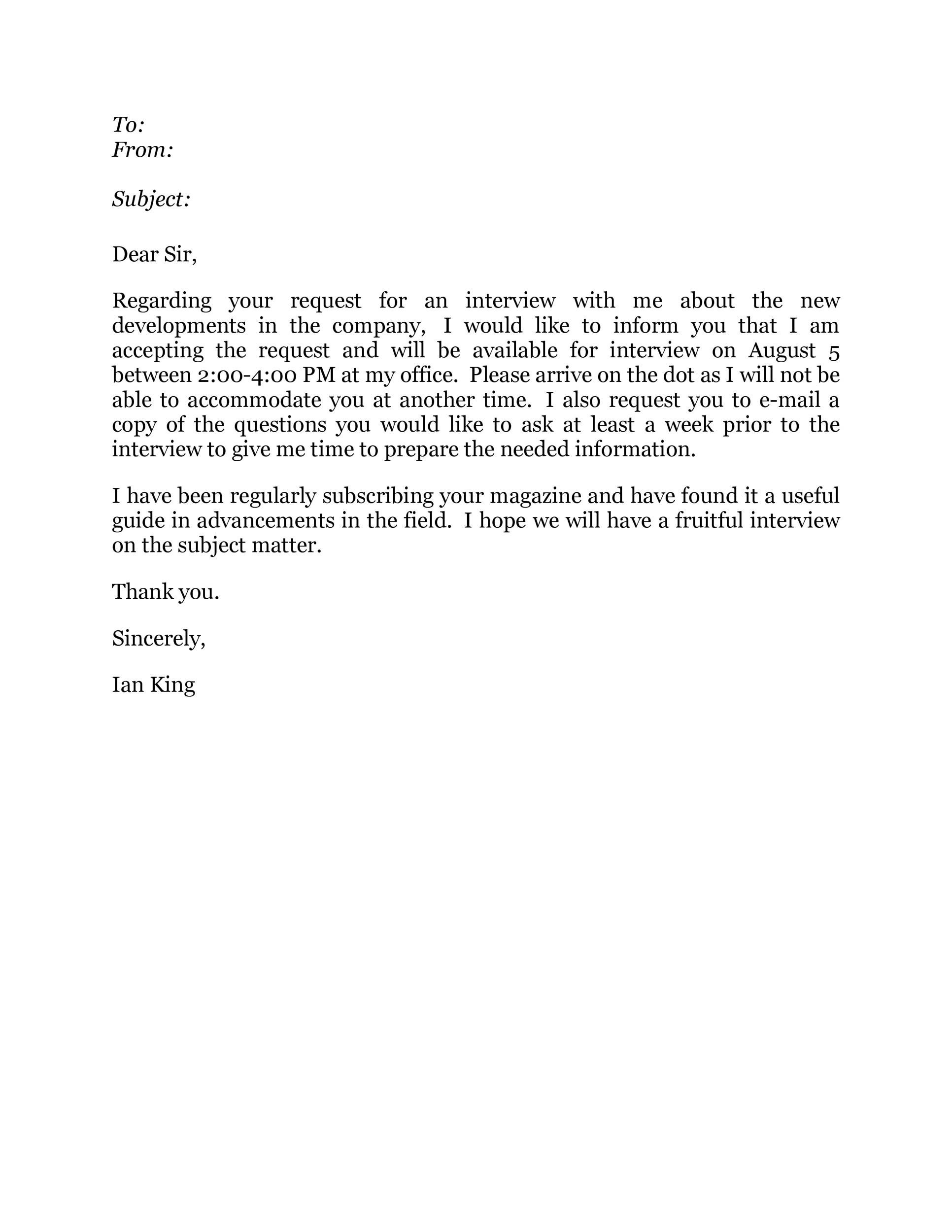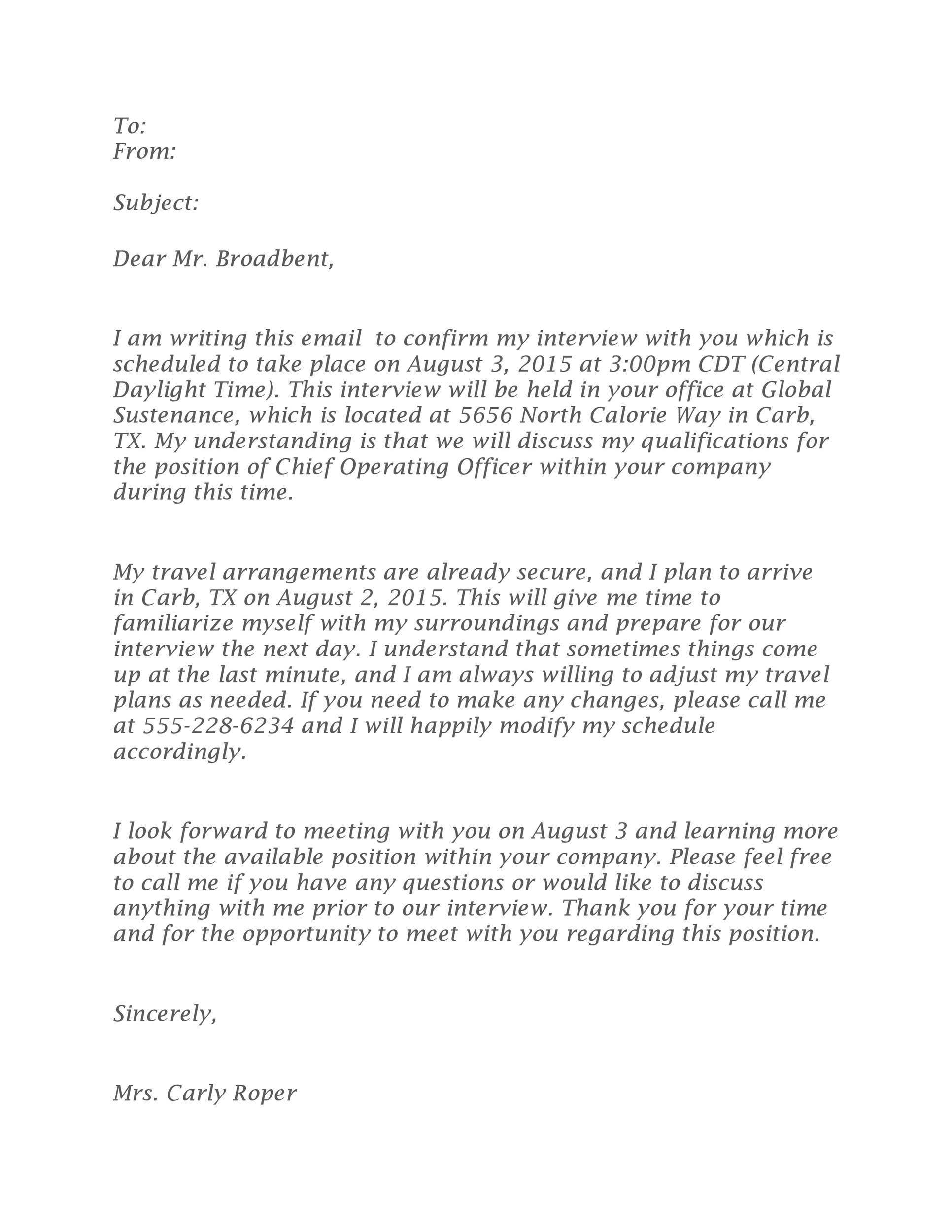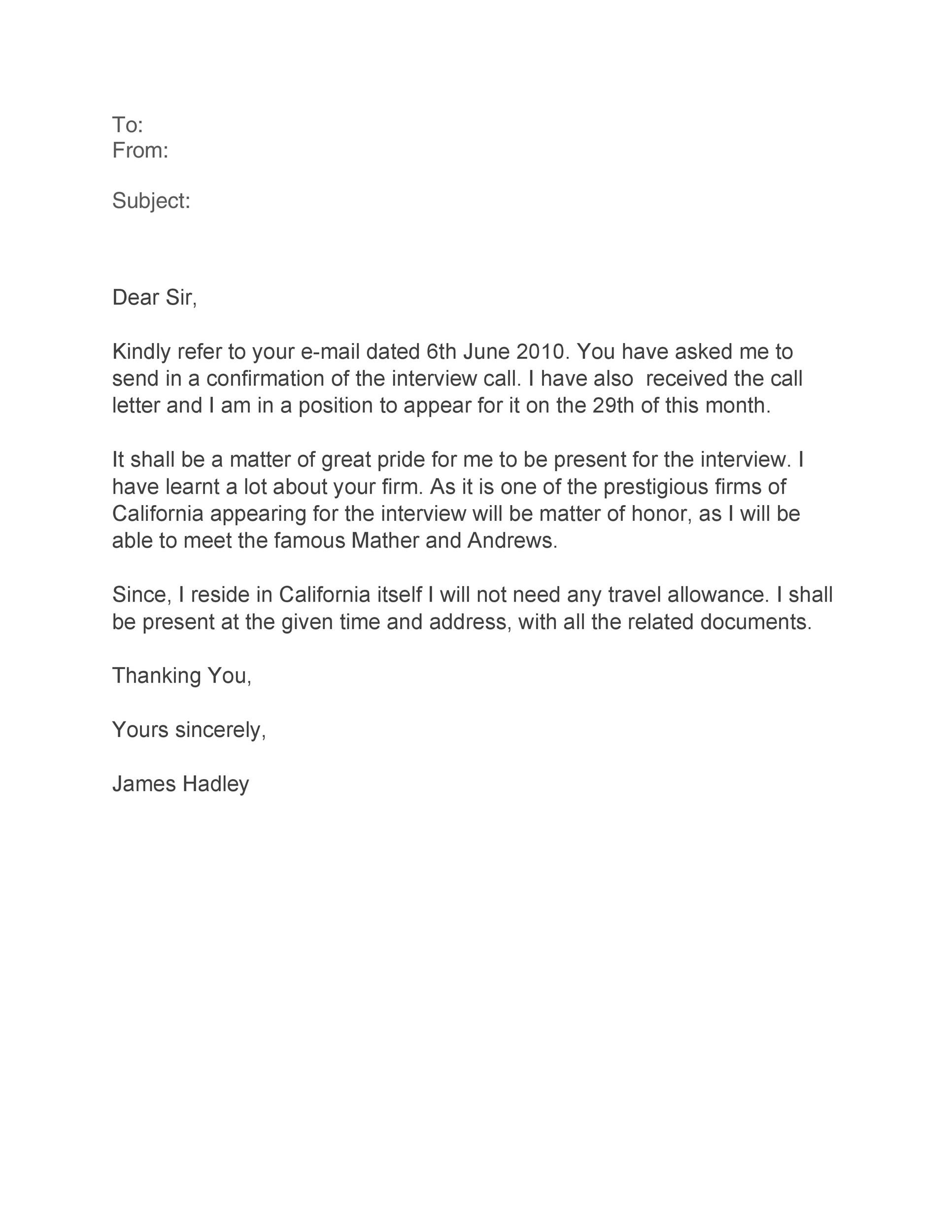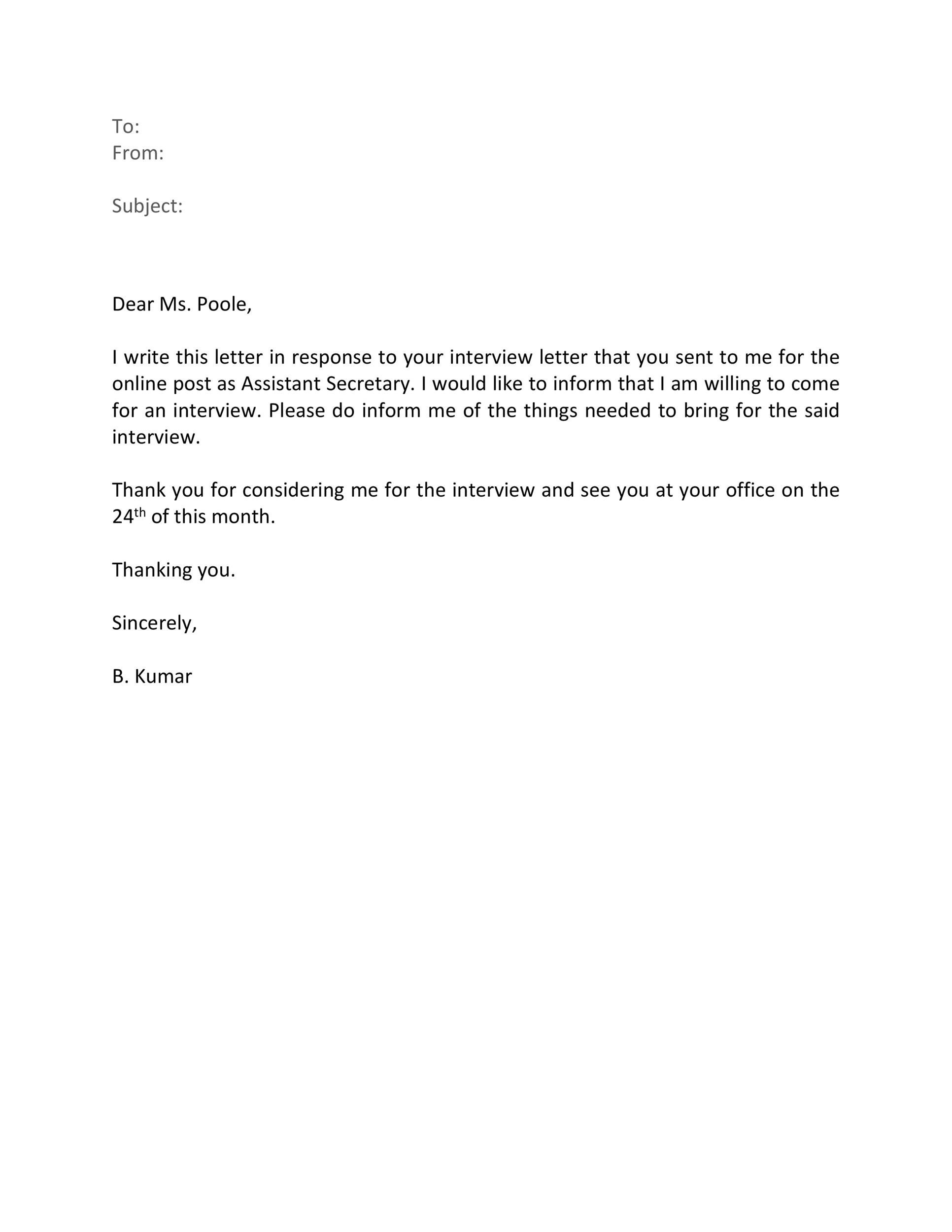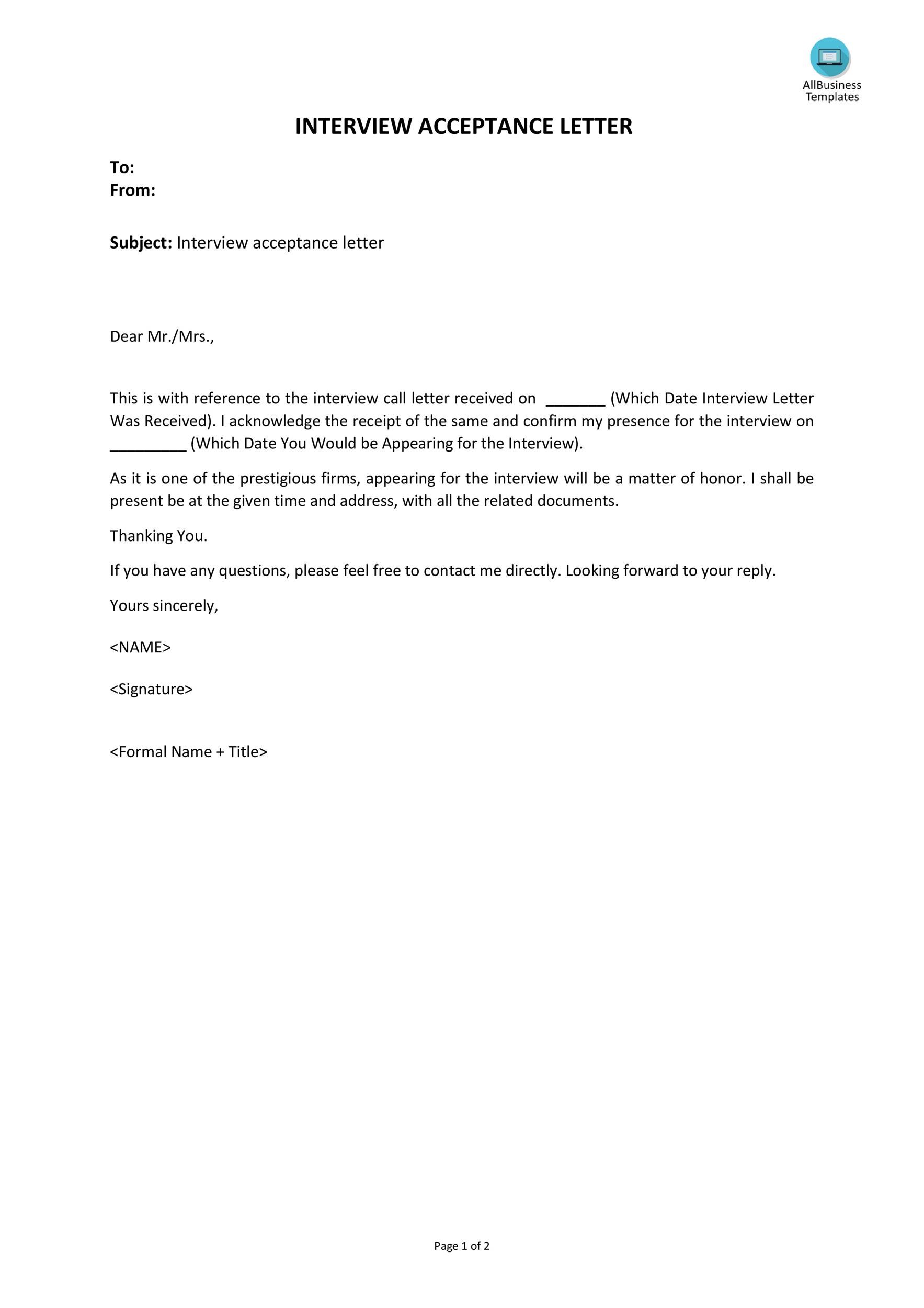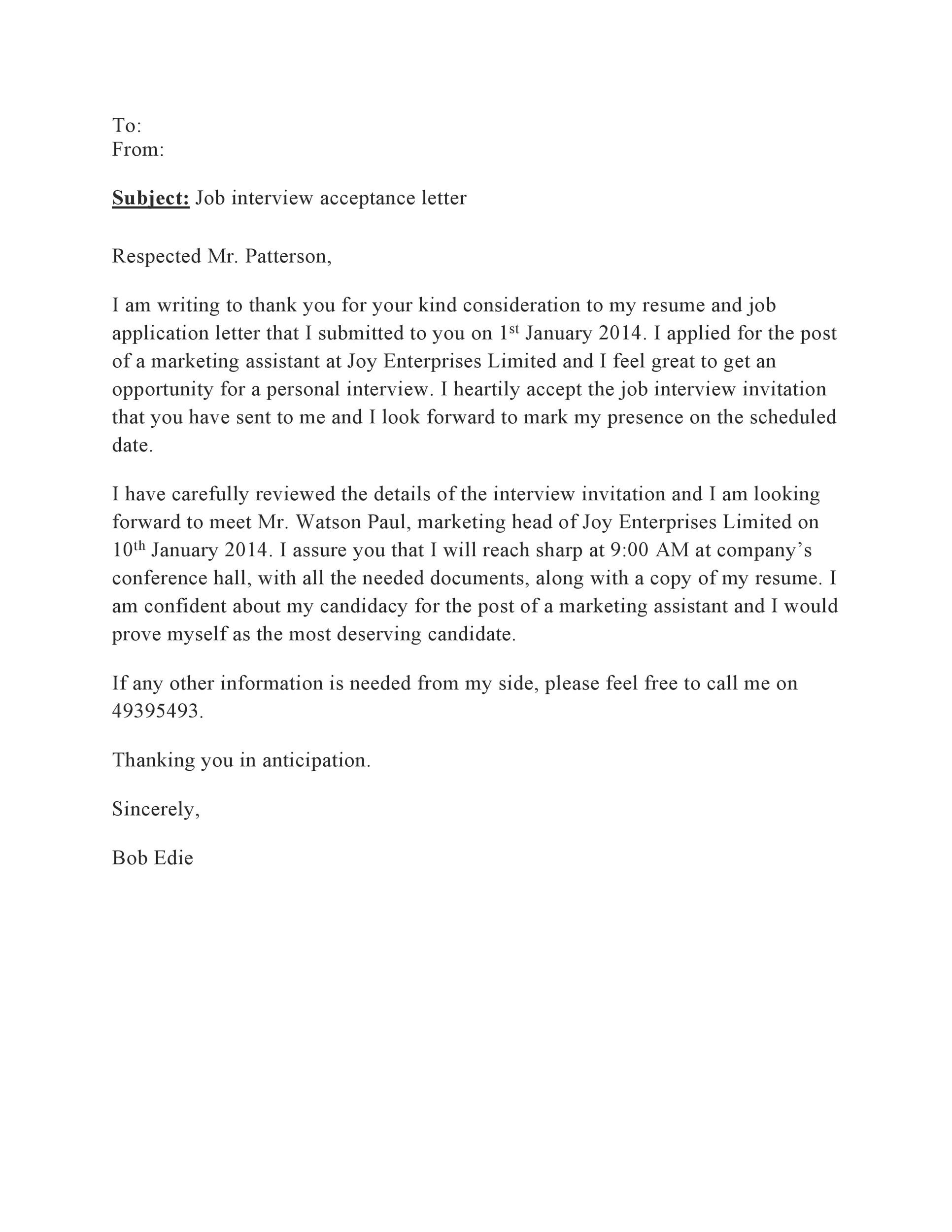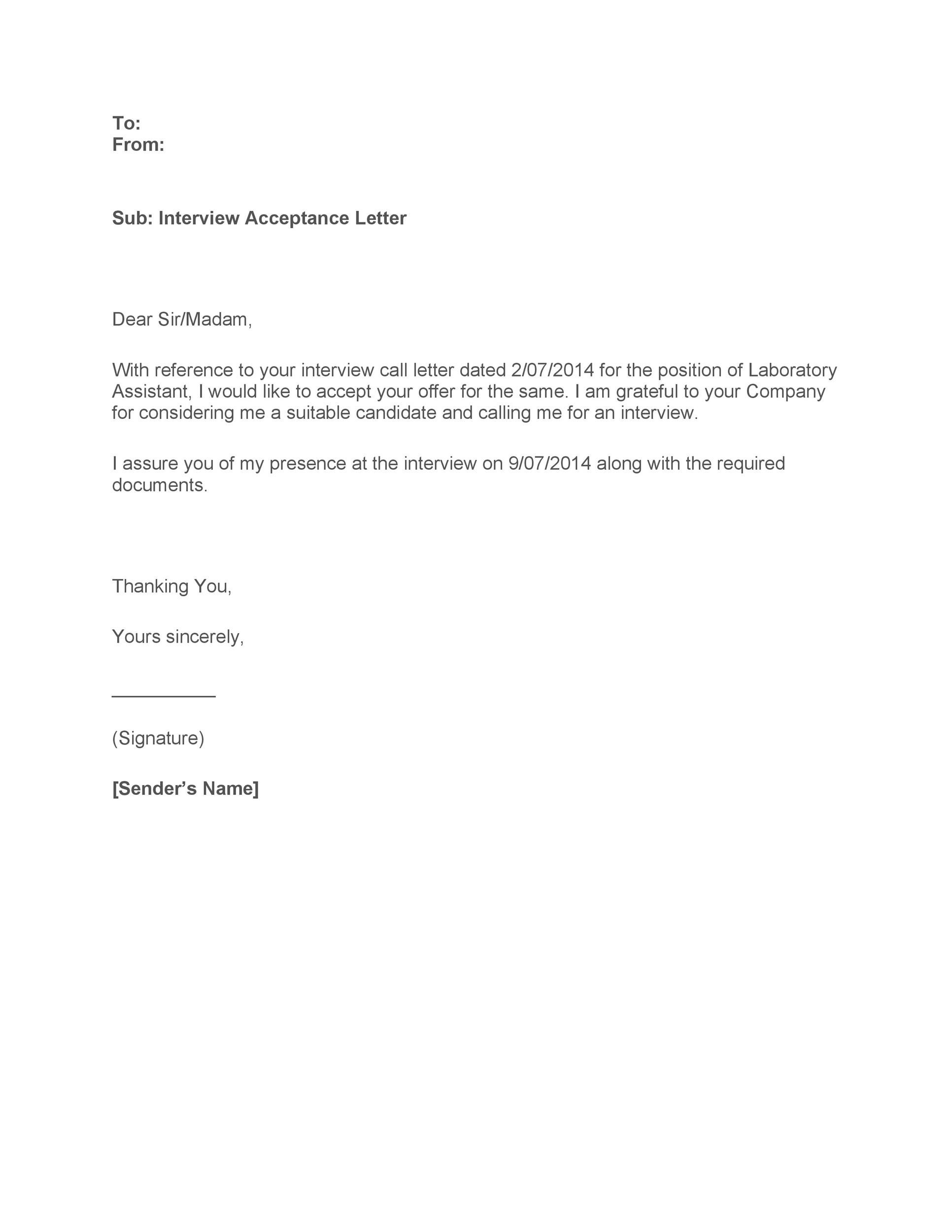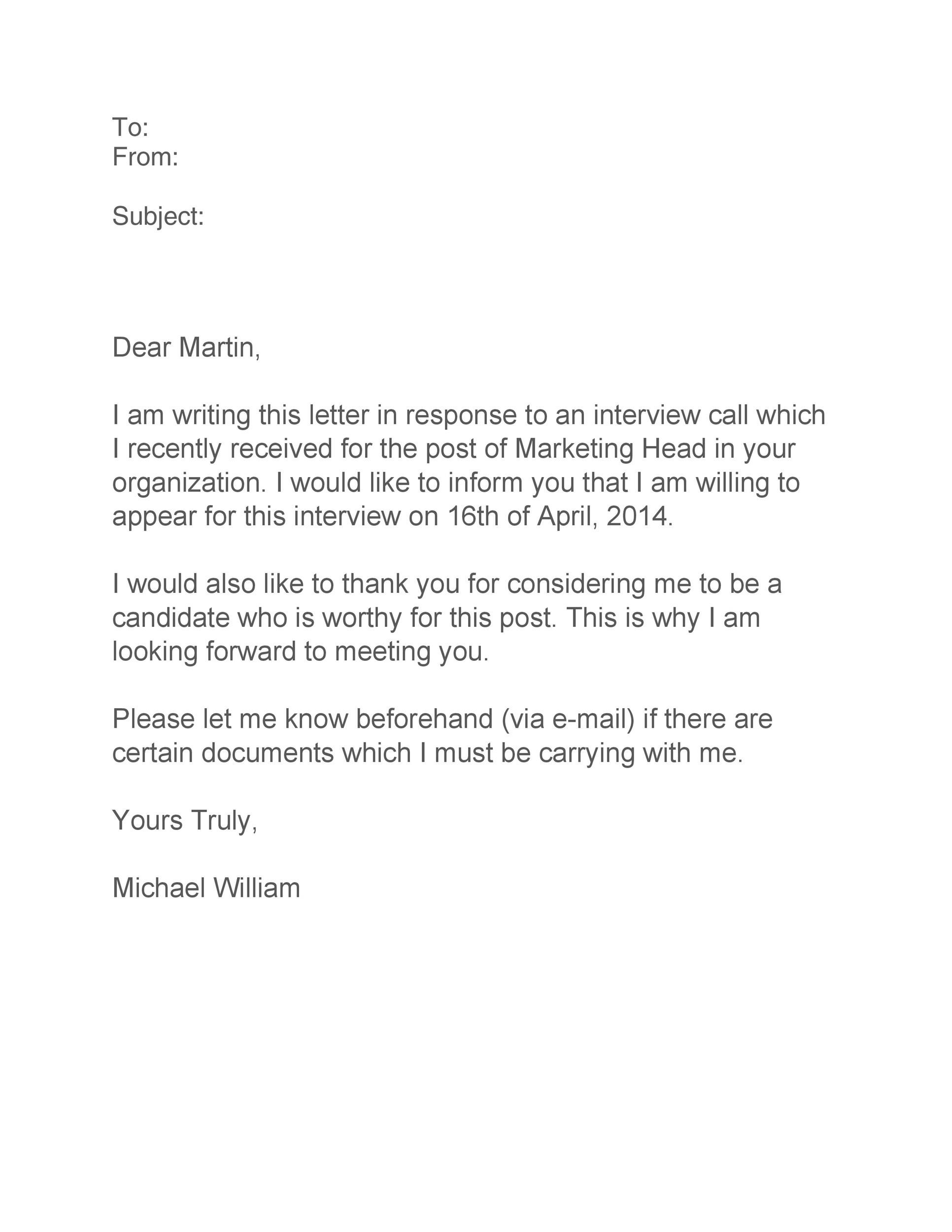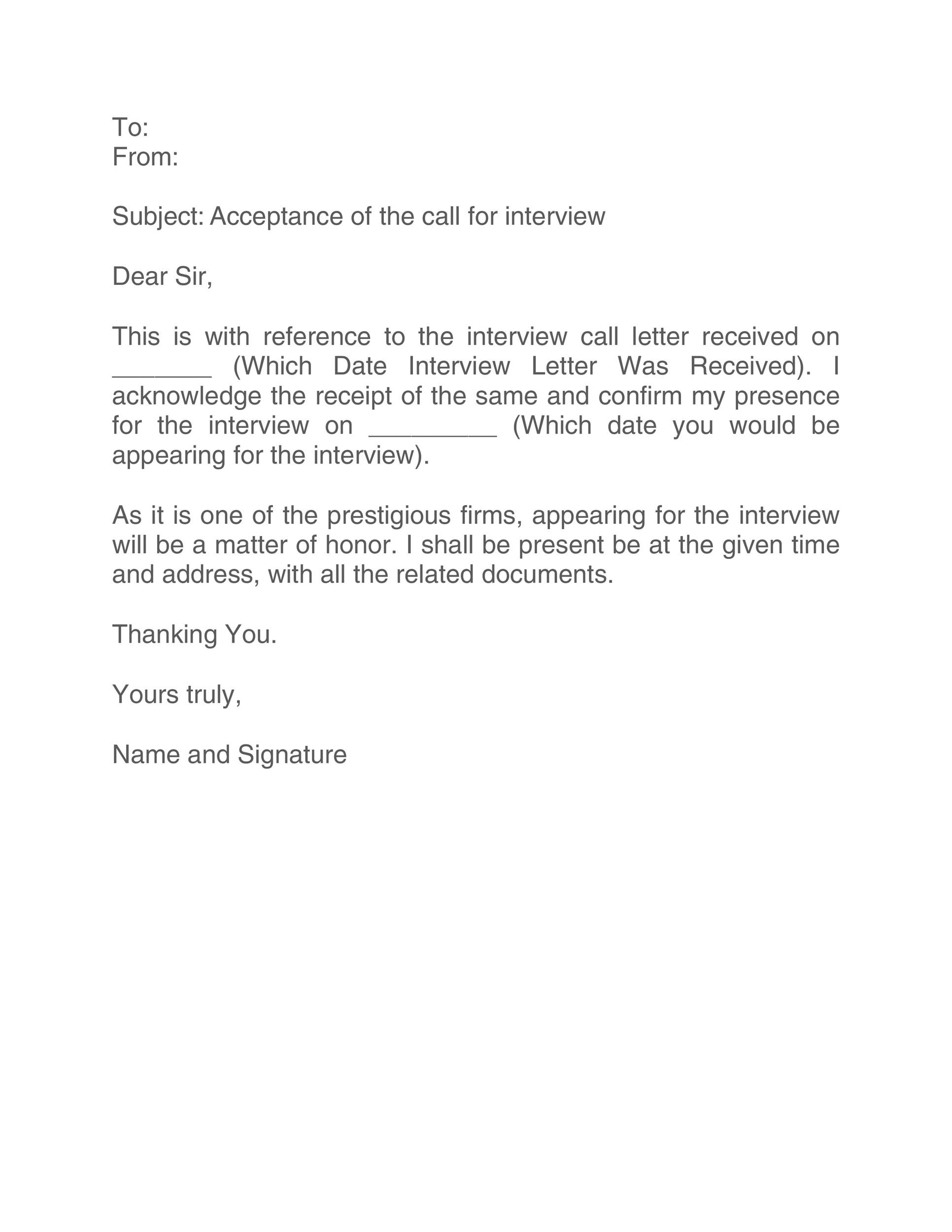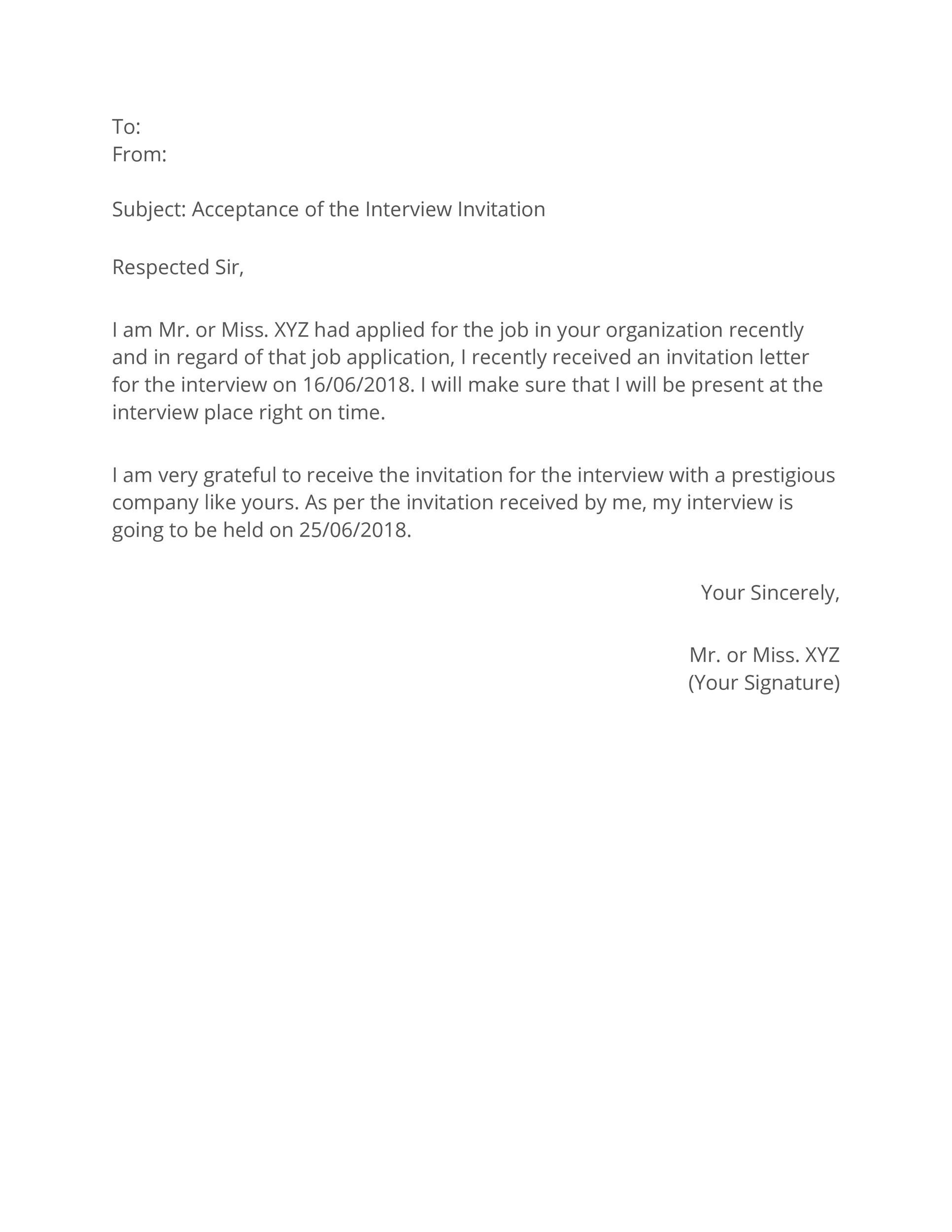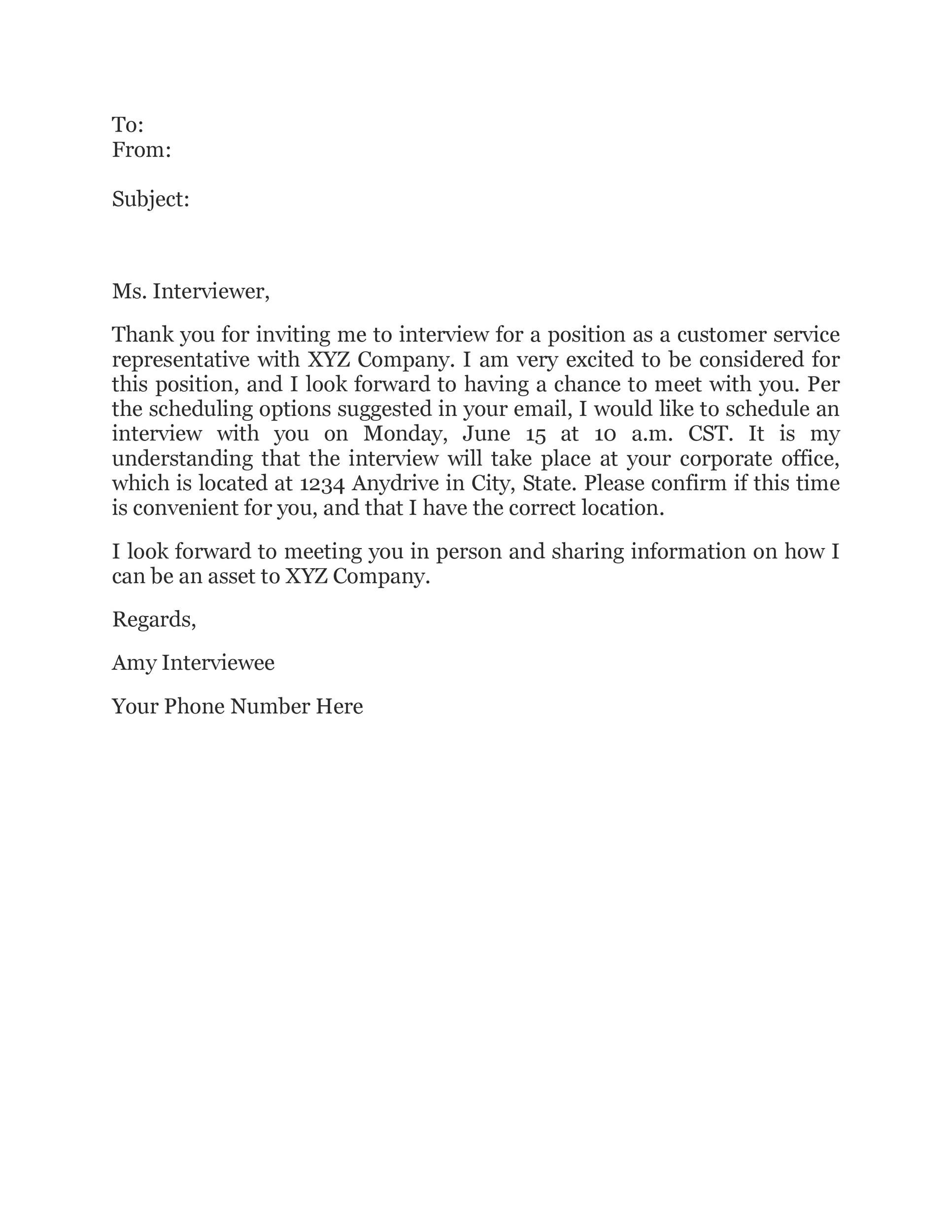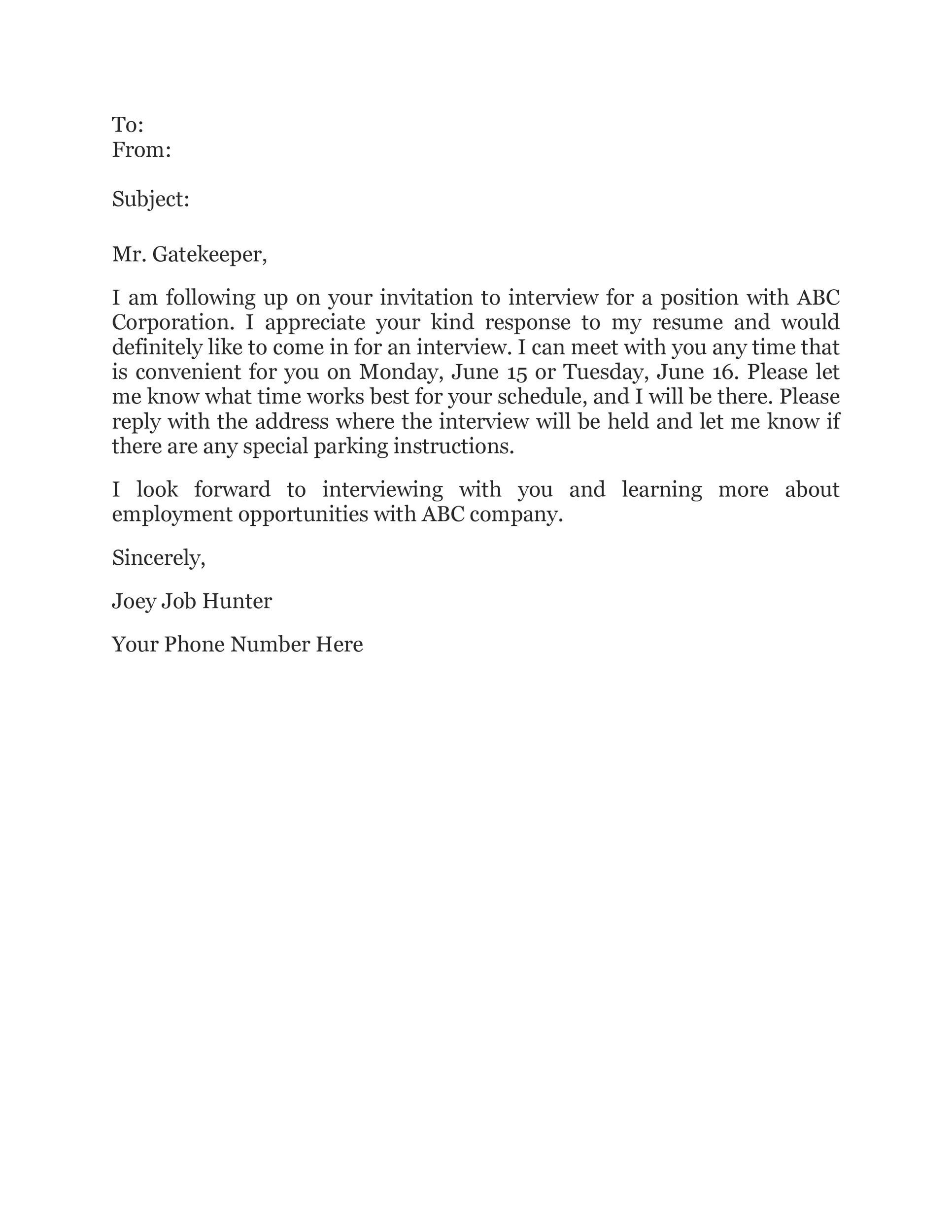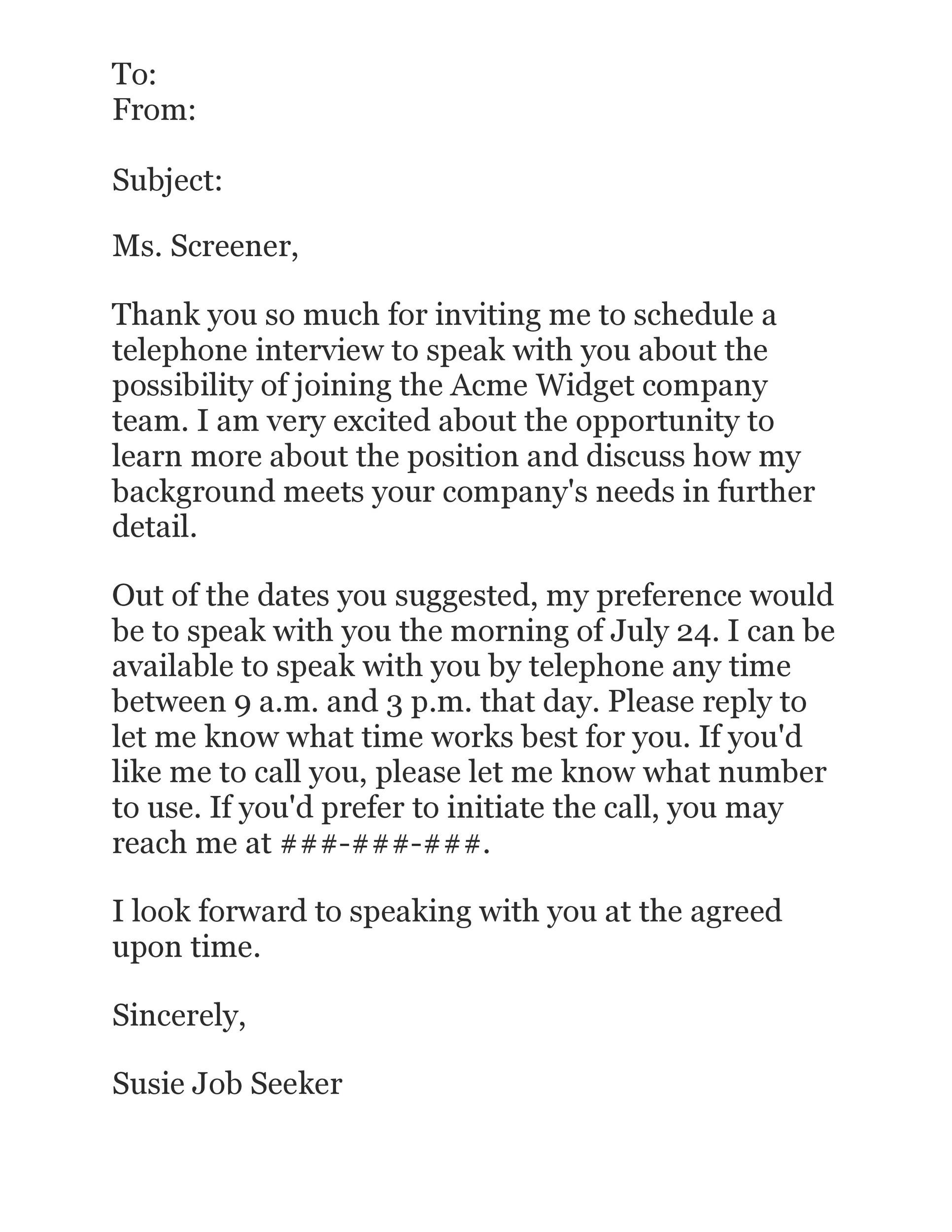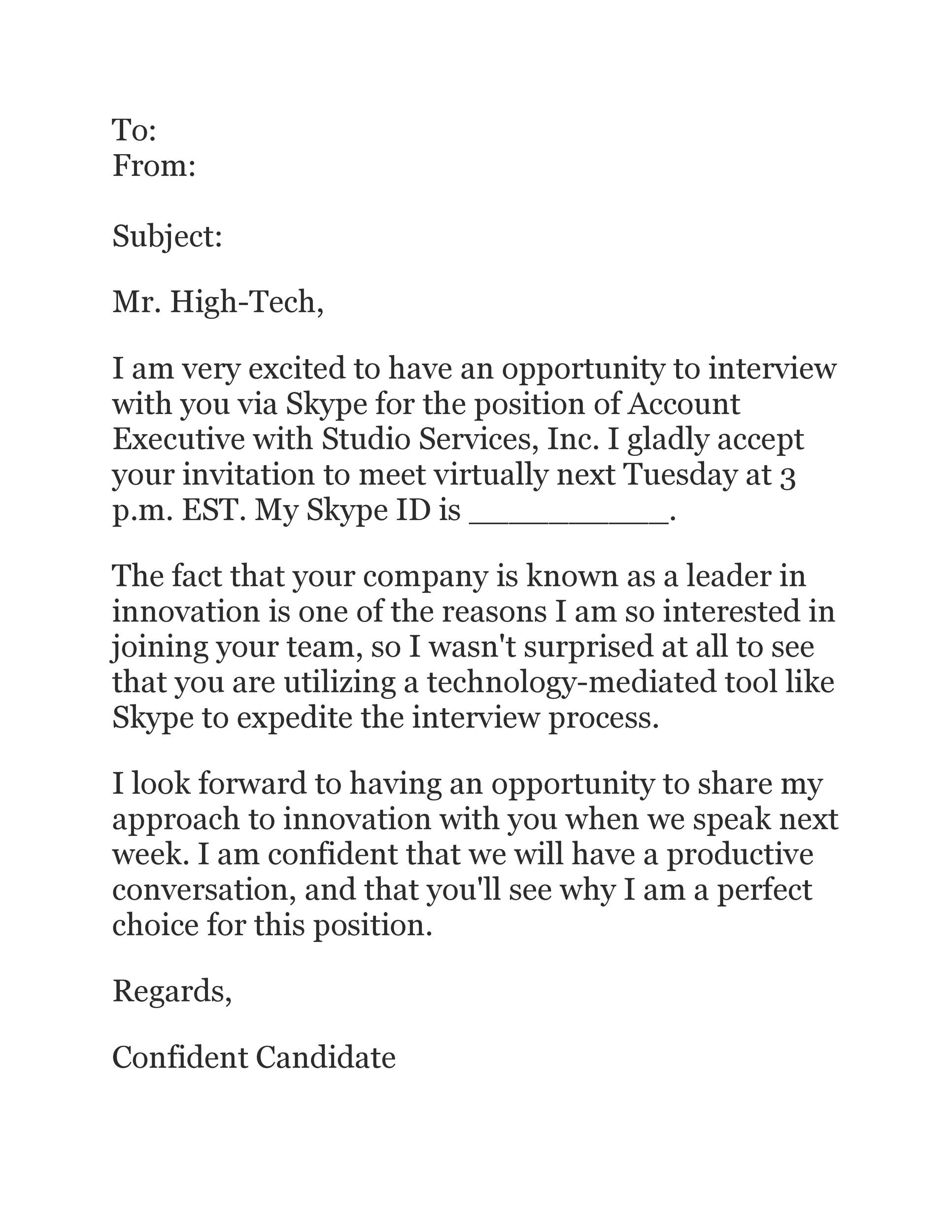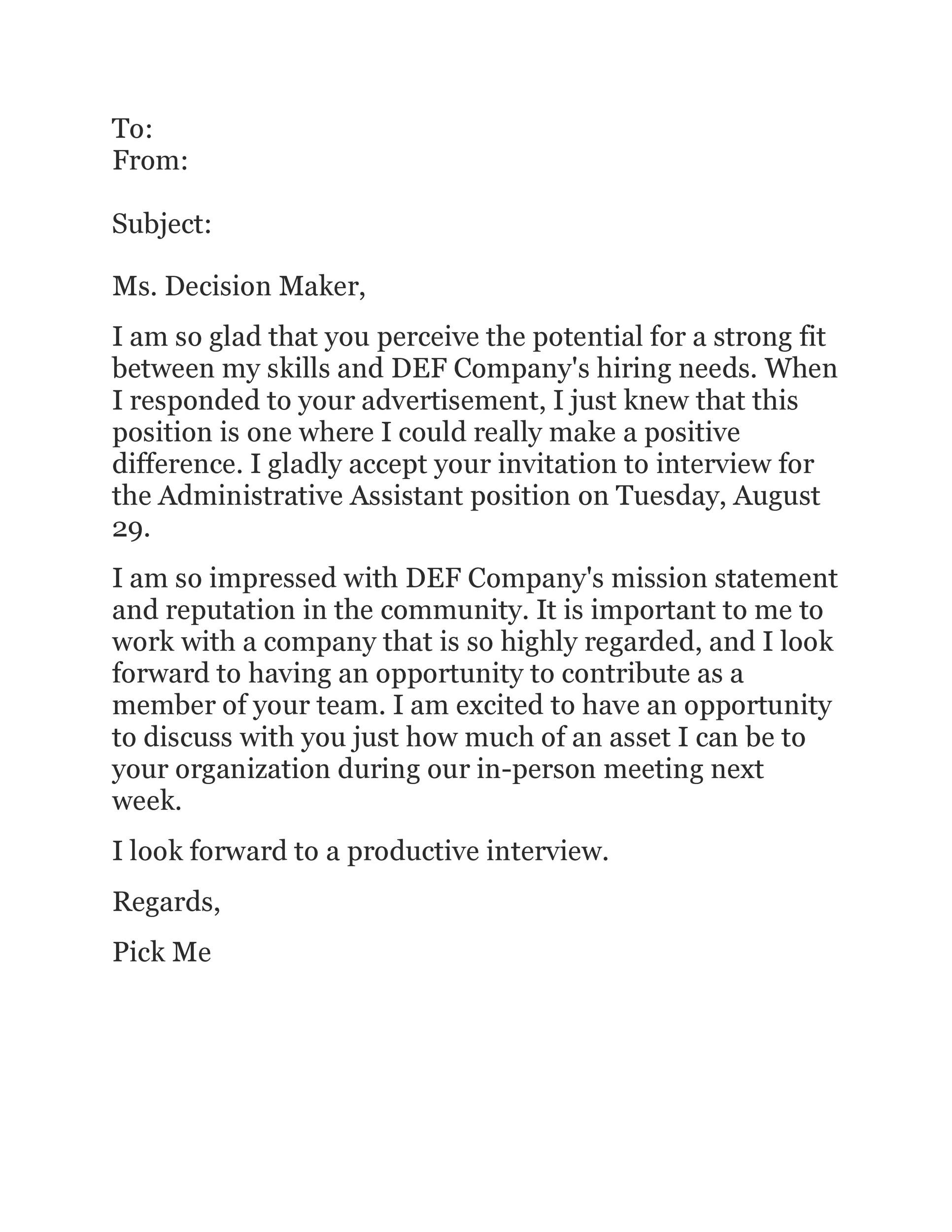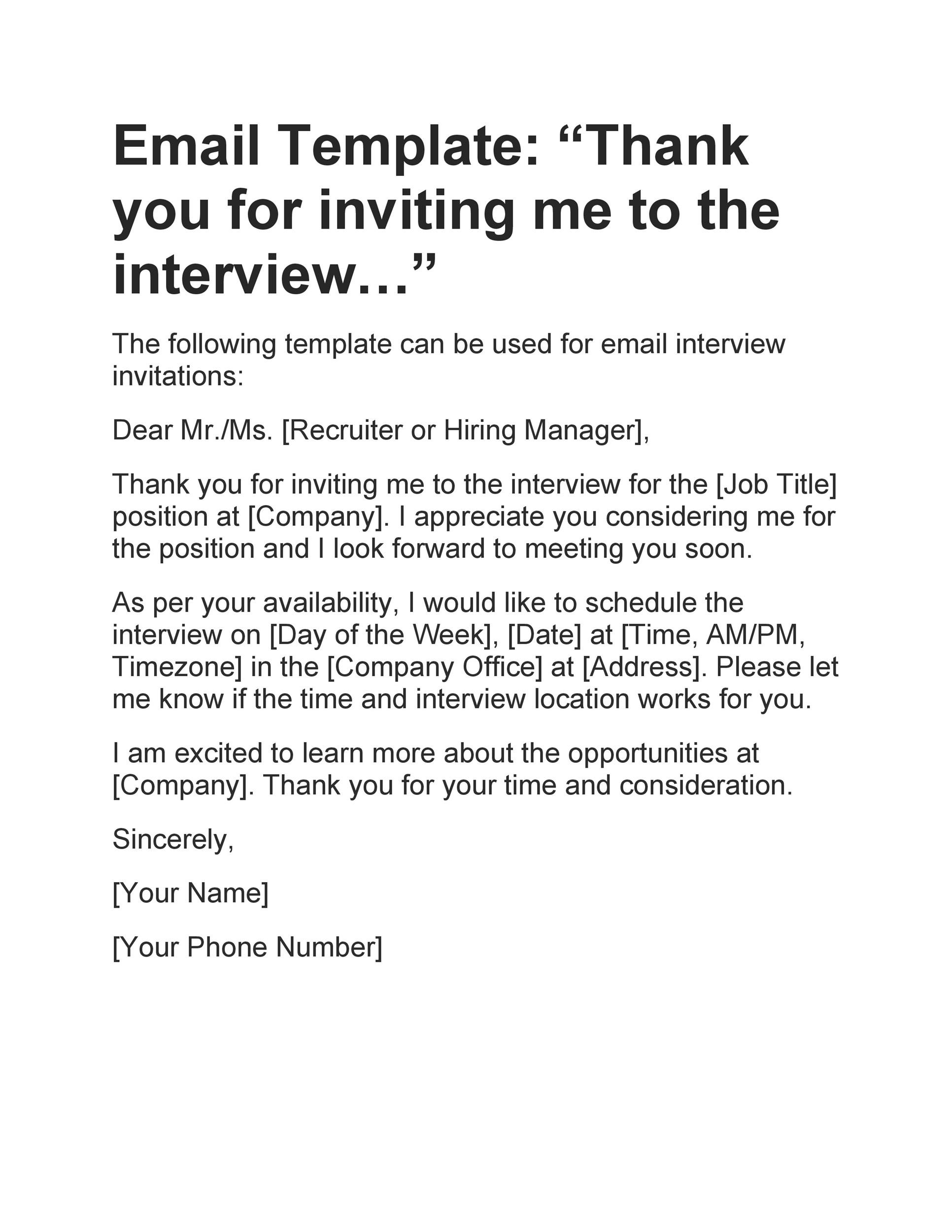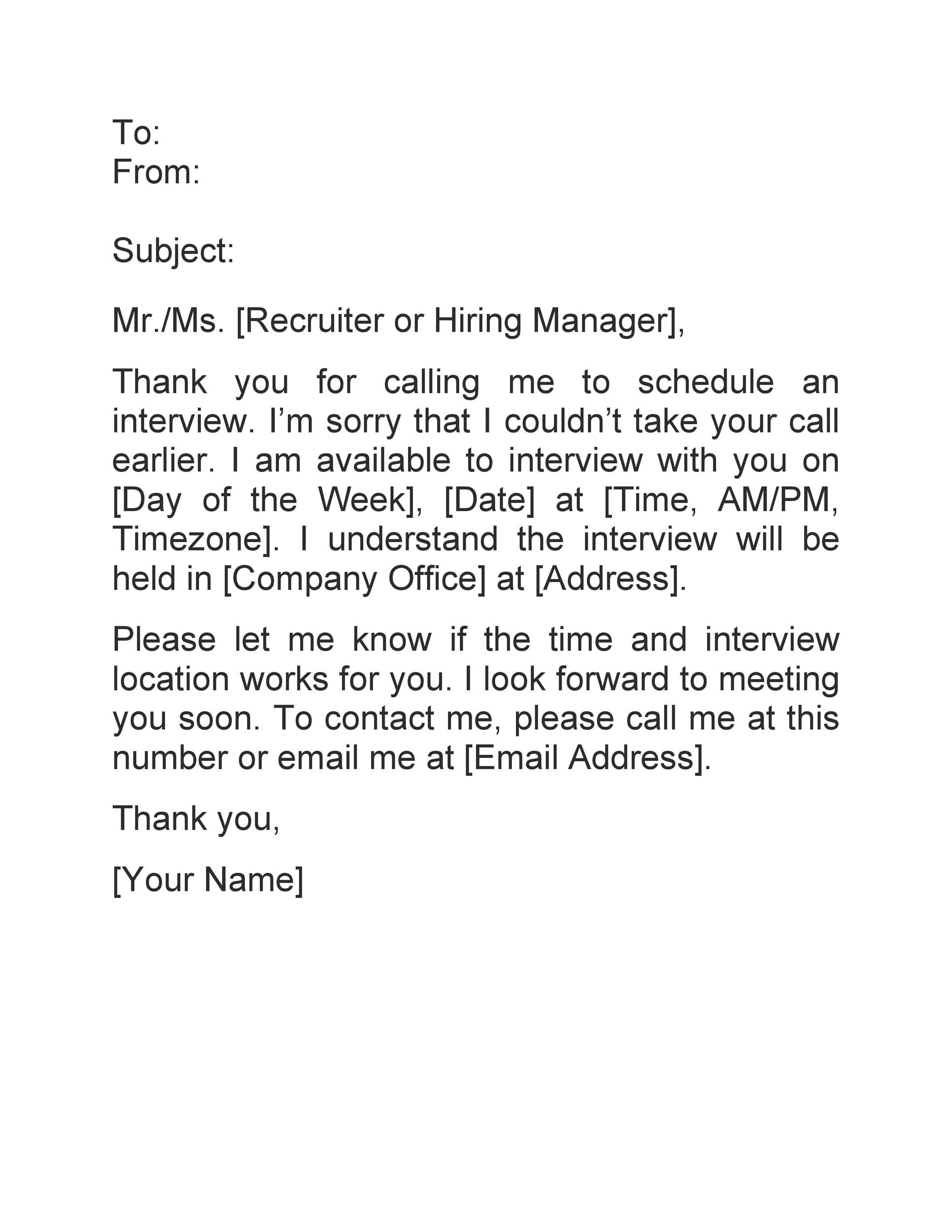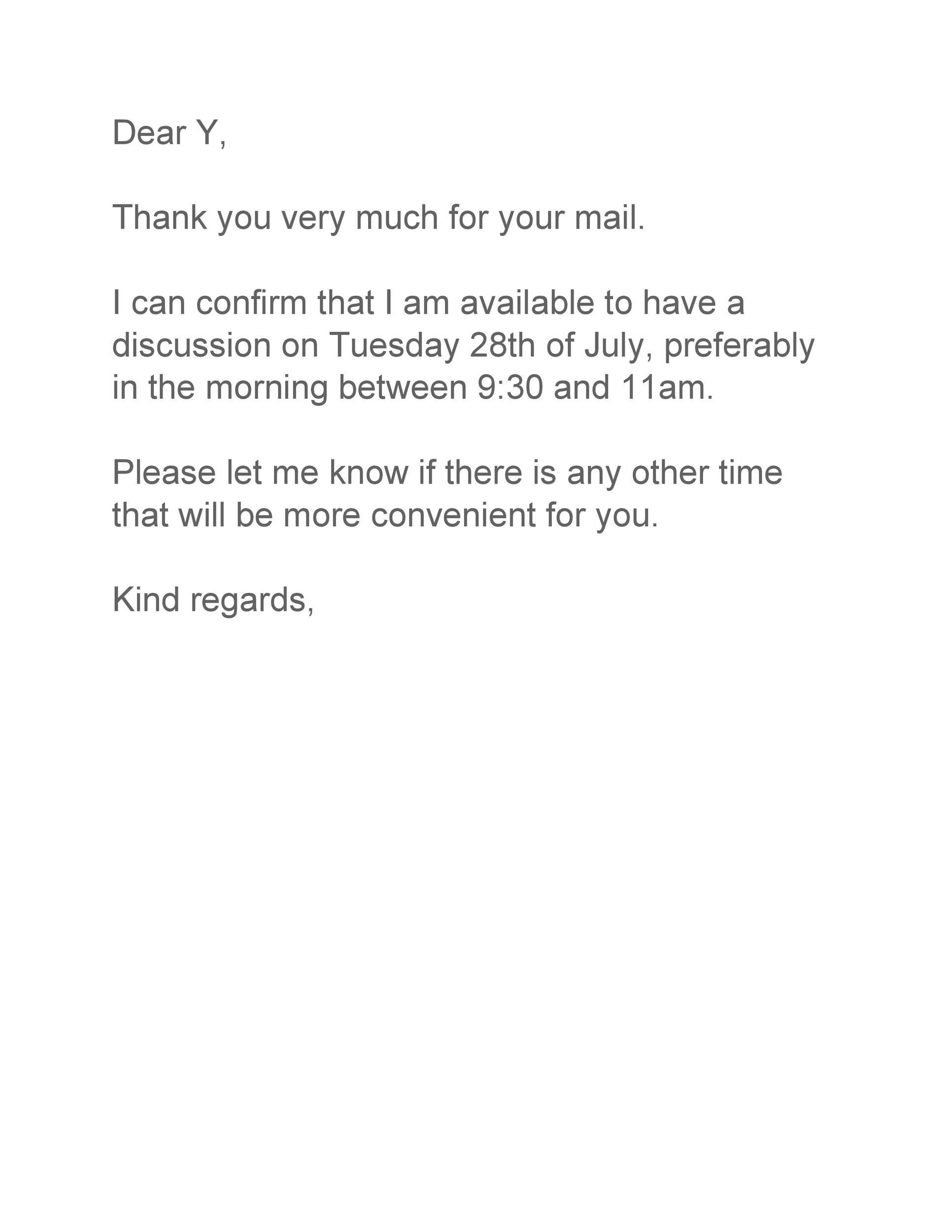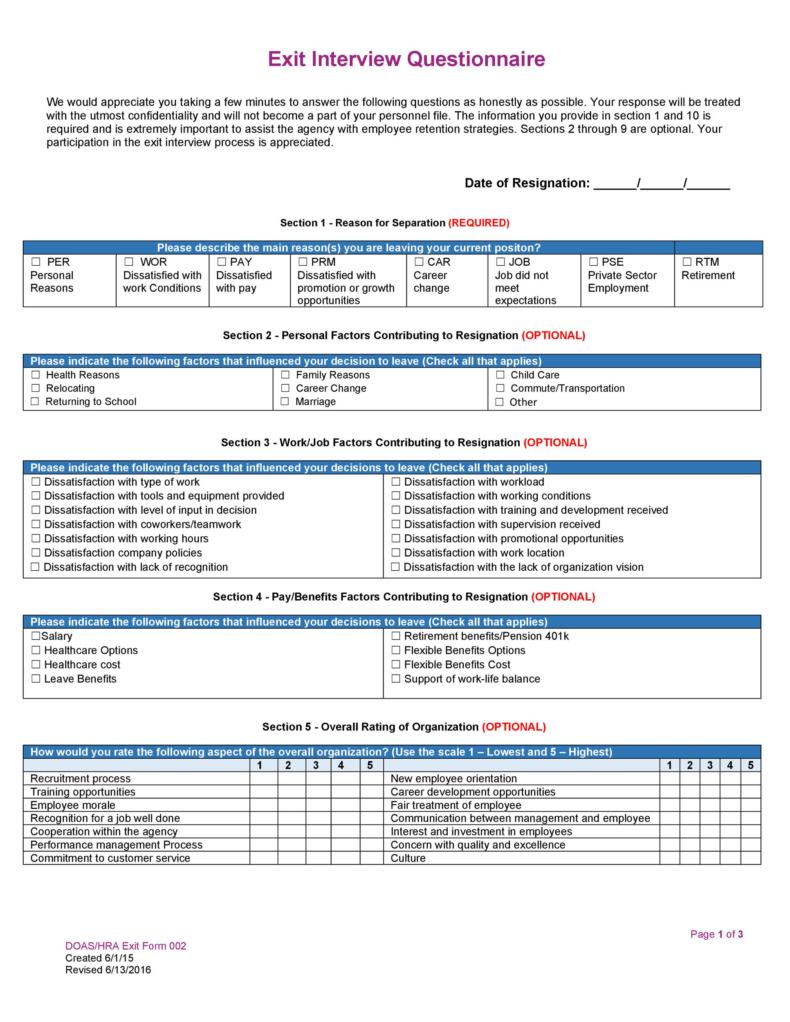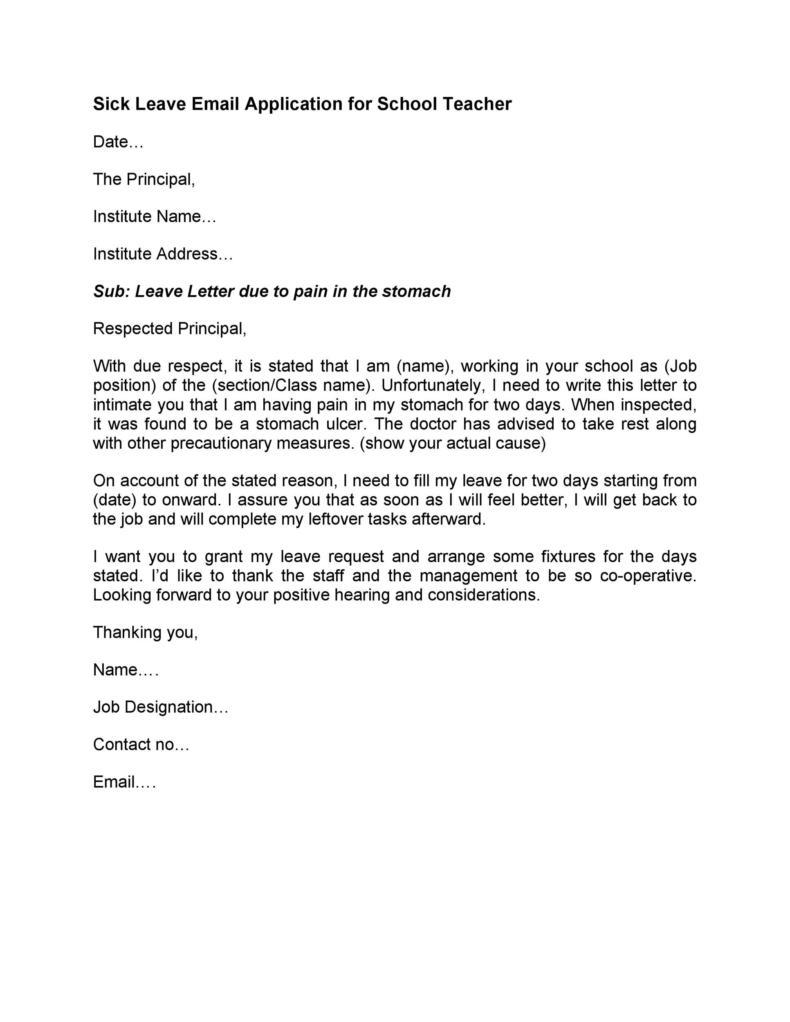So, after sending out applications, you’ve scored some interviews from employers. That’s great news! To accept or confirm the interview, it’s a good idea to send an interview acceptance email to the potential employers. Do this even after you’ve had a conversation with an HR representative or the hiring manager over the phone. Sending an interview confirmation email shows your interest in the position, and it also helps ensure that you’ve got all of the correct details about the interview.
Table of Contents
- 1 Interview Acceptance Emails
- 2 When should you send the interview acceptance email
- 3 Smart tips to follow when writing an interview acceptance email
- 4 Interview Confirmation Emails
- 5 Responding to follow-up questions in an interview acceptance email
- 6 Interview Confirmation Email Replies
- 7 Basic etiquette to follow when writing an interview acceptance email
- 8 Interview Acceptance Email Samples
Interview Acceptance Emails
When should you send the interview acceptance email
The best time to send an interview confirmation email reply is soon after receiving the notice of the interview. But if the hiring manager informed you that they would send a confirmation email to you, then you won’t have to send the interview acceptance email. This is the only exemption to the rule.
Smart tips to follow when writing an interview acceptance email
Just because you’ve received an invitation for a job interview, that doesn’t mean that you’re guaranteed the job. It just means that the employer would like to speak to you, get to know you better, and find out if you’re the right one for the position. Employers invite potential candidates in different ways. Usually, though, they would communicate with you through email or by giving you a call.
After receiving the invitation, you can confirm and accept it by sending an interview confirmation email. Send this message to the person who gave you a call or sent you an email. To give a good impression, here are some smart tips to follow:
- If you’ve sent your applications or acceptance emails using your personal email address, make sure to check it regularly. That way, you won’t miss any messages or emails from the people you’ve sent your applications to.
- If you’re currently employed, it’s not a good idea to include your work contact information in the email as a means to contact you. The reason for this is that the employer might give you a call if there are any changes in the details of the interview. If the wrong person receives the call, you might get into trouble at work.
- If you receive an email from the hiring manager, it will provide you with all of the information you need about the interview. Such information may include:
The name of the employer, the job title, and the job’s location
Where the job interview will take place
The type of interview you will have
The names and the job titles of the ones who will conduct the interview
Other relevant information such as how to get to the venue of the interview
Some time and date choices so that you can choose the best time which would fit into your schedule, especially if you’re employed. - If the interviewer sent a time or date that you’re unavailable, then state this in your interview confirmation email reply. Then include some options of times and dates when you’re free for the employer to choose.
- When composing your reply, do so in a professional way. Remember that you’re trying to impress the employer. Here are the basic things to include in the email:
The salutation must include the name of the person you’re replying to
A statement thanking the recipient for the interview invitation
A statement which conveys your interest in learning more about the job
If you’re given choices of times and dates, confirm the best time when you can have the interview.
Close the letter respectfully and professionally. - If there are any details or there are some things which you haven’t understood about the interview, then you can ask some questions in your reply. You may also ask if you need to bring any other documents with you for the interview.
Interview Confirmation Emails
Responding to follow-up questions in an interview acceptance email
Receiving an interview invitation from an employer is a very exciting experience. Most of the time, you’d like to respond promptly and enthusiastically. Sometimes though, the employer might ask for more information in the email apart from just the invitation. Here are some ways you can respond to the most common questions asked by employers in your interview acceptance email:
Responding to an interview request
If you receive an email or a call about an interview, it’s best to send your reply shortly after, preferably within the day. This will show the employer that you’re enthusiastic about the opportunity and you respect his time. Make sure that your interview confirmation email is clear, brief, and has a positive tone. Then reinforce the date and time of the interview. However, if you can’t make the time or date they’ve set, state the reason why and provide an alternative time when you’re free.
Responding to a request for you to call them to set the schedule for your interview
If the employer asks you to give them a call to set the interview schedule, you may still send a confirmation email. Just make sure to keep it brief. Then call them within the day to set your interview.
Responding to a request for you to email them to set the schedule for your interview
Some employers might ask you to send them an email and provide them with the best time they can interview you. In such a case, you may have to send the email to two people. First, to the employer and second, to the one assigned in arranging interview schedules. Respond in a professional and timely manner to give them a good impression and to show your interest in working with them.
If you don’t have a flexible schedule, then explain that in your email. Remember that you’re communicating with a potential employer, so you have to show how well you communicate and how honest you are with your circumstances.
Responding to follow up questions
In some cases, an employer might send you an interview invitation email with some follow-up questions. In essence, these questions are the preliminary interview, so you need to answer them in your reply. You may receive questions about:
- Your company
Provide specific details about your company without giving out any confidential information. Doing the latter might show the employer that you have no problem with sharing company secrets and that’s a definite no-no. - Your salary requirements
This is one of the more sensitive questions employers may ask you. But the main reason why they would ask for this information is to find out if they can offer what you’re expecting.
For this question, you may put-off talking about the salary until you’ve learned more about what job they’re offering to you. Another way to respond to such a query is by providing a salary range rather than a specific number. Providing this information early on will give the employer a better idea if they can have you on board. - Your career path
When talking about your career path, make sure to align it with the description of the job you’re applying for. Also, emphasize the enthusiasm you have for the position and the company. - Skills which you don’t possess
If the employer asks you about skills which you don’t possess, don’t lie and say that you do. Instead talk about transferable skills, how you can easily adapt or learn new skills in a short amount of time, and how you’re very much willing to learn what you have to. It’s extremely rare to have all of the required skills, so you need to show the employer that even though you lack those skills, you will learn them so you can perform better at your job.
Interview Confirmation Email Replies
Basic etiquette to follow when writing an interview acceptance email
Your resume is an important part of the application process but so is the way you communicate with the people in charge of hiring. Therefore, you need to make a respectful and professional interview confirmation email reply if you want to make a good impression. After you receive an invitation for an interview, take some time to compose your interview acceptance email to ensure that it will convey the right message. To help out, here are some basic etiquette you may want to follow:
- Send a timely response
The sooner you get back to the employer, the better. That’s because recruiters are usually on the clock and they don’t have time to wait around for confirmation from applicants. As soon as you receive the information, compose your interview confirmation email then send it at least within the day. - Express your appreciation for the opportunity
Somewhere at the beginning of your reply, express your appreciation for the opportunity. This is especially important if you’re applying to a huge company which may have invited several applicants for interview. Showing your appreciation may give a positive message to an employer about how you’re enthusiastic about the chance for an interview. - Accept and confirm the interview invitation
Finally, accept the interview invitation in a professional way. Then keep checking your email up until the schedule of your interview in case there are any changes to the details.

